|
Are You Devastated Over Losses in Your Brokerage Account? Elated Because You Won? Includes 4 Reminders and Updates for 2023 Nest Egg Strategies It’s easy to be upset in a year that saw such losses in stocks and bonds. By far the most troubling response I’ve seen of late was a post on Reddit that read, “Just lost all my savings at 19, time to let depression win and kms!” There was a picture of a short on Snap Inc., which was out of the money due to the general market gains since the lows in October of 2022. While we all hope the user is getting the emotional support that s/he needs to get through this hardship, is it ever a good idea to invest everything in an options strategy? (Nope.) I’ve also heard others boasting that they are still up over a 3-year period. So, did the boasters “win?” Are those who are looking at their losses, “losers?” Most people under the age of 40 are spending 35-50% of their income on housing. Who wins and loses in that stranglehold? Are money and life merely a game of losers and winners, or is there more to the equation? After a loss, an athletic team will go over the game plan to identify the strengths and weaknesses of each play, in order to have a winning strategy in the coming game, rather than just feel good or bad about the outcome. Similarly, emotions are not valuable in investing. Whether we feel that our plan worked or didn’t, it’s equally important to make sure that we have a sound strategy in place now, particularly as we can see economic storms on the horizon. It’s easy to make money in a bull market, and easy to lose in a recession. So, rather than hope the troubles disappear, it’s a better idea to have a game plan that works in a harsh environment. Braggarts tend to be humbled in recessions. If your plan is “up” over the 3-year period, it could actually be a sign that you are not properly protected. In 1999, holiday parties were filled with people boasting about how much money they had made on their AOL stock. When the company merged with Time-Warner a few years later and posted the biggest write-down in history ($98.7 billion), those same folks were radio-silent. It’s very important to know our history, since stocks are even more expensive today than they were then, by Warren Buffett’s favorite valuation indicator – a comparison of GDP with the total value of the Wilshire 5000 companies. It’s also important to know the time-proven 21st Century strategy of proper diversification, regular rebalancing, and to know what is safe in the current environment. Long-term government bonds lost more than the S&P500 in 2022. We’ve been warning about bonds since 2012. Knowing how to protect our wealth is so tricky in a Debt World that we spend one full day on this topic at our Investor Retreats. (There are some excellent areas of low-hanging fruit to consider.) Why Putting Everything Into Perspective Is Imperative Losers never enjoy themselves, even when they are actually winning. Professional baseball players don’t spend a lot of time crying after they strike out. They don’t expect perfection, although they certainly do want to win the game and improve their performance. If we have a lot of things going right for us, it’s important to put any “losses” into the broader context of what is really happening, rather than complain about striking out in this or that at-bat. All investors lost something in 2022. The only way we didn’t have losses in 2022 was to have everything on the sidelines or in silver – which is not a good game plan. By simply acting our age, avoiding bonds and overweighting safe, the average losses in 2022 should have about 6% if we were 50 – less if we were older. Just like athletes, professional investors practice and perfect their craft, adopt a time-proven winning game plan and stick to it. In the finance world, it’s called sticking to your knitting. Here’s what a time-proven, 21st Century plan looks like. CEO Ben Horowitz Rescues His Company from 39 Cents/Share In July 2007, Hewlett Packard announced that it had agreed to acquire Opsware for $1.65 billion in cash ($14.25 per share). The acquisition closed on September 21, 2007. However, before that epic win, Ben Horowitz (CEO) and Marc Andreessen (chairman) had to endure a two and a half year slide. At the bottom of the Dot Com Recession in late 2002, Loudcloud was trading at 39 cents. Were these VC legends idiots in 2002 and geniuses in 2007? Anyone on the wrong side of the trade in 2002 or on the right side in 2007 would have said so. However, when I asked Ben Horowitz what the trenches were like (back in 2004, when his company was back to trading at about $6.00/share), he responded, “You have to listen to a lot of very smart people telling you how stupid you are.” (You can read my Q&A with Ben & Marc on Forbes.com. Click to access.) Even great businesses can meet challenges, or lose revenue, market share and/or share price, especially in recessions. Editor’s Note: Check out Ben Horowitz’s book, The Hard Thing About Hard Things. Mother Nature and Real Estate Tom and Stefanie Wurst lost their home, farm and many animals, which had been in the family for 5 generations, in the Kangaroo Island bushfire in Australia. The fire started on Dec. 20, 2019 and continued for several weeks. They are now recovering, and they are grateful to people from around the world who assisted them in their time of need. (At LoudCloud’s bottom, the entire team came together to pull off the success, instead of allowing the company to fold.) Whether our investments are being burned up by Mother Nature or Wall Street, it’s important to have a plan to protect ourselves. Diversification is key. Rebalancing is important. Knowing what you own is essential. Resilience and hard work matter a lot more than feelings. Success is linked with practice and having a good system, and getting back up after a setback. Hubris (“I won!”) or self-flagellation (“I’m a loser!”) work against our recovery. As we developed our easy nest egg pie chart strategies in 1999, we’ve seen how having discipline, combined with a time-proven 21st Century strategy, can earn gains in recessions (when most people lose more than half of their wealth) and outperform the bull markets in between. While we all hope that any recession in 2023 is as mild as some economists are calling for, it’s a better idea to have a plan in place that works any way the wind blows. Here Are a Few Reminders and Updates for Our 2023 Nest Egg Strategy Buy Low, Sell High Easy to Say, Hard to Do Did you neglect to rebalance (sell high) in early 2022? It’s easy to think that everything will keep going up when we’ve enjoyed the longest secular bull market in history. 2022 taught us just how dangerous complacency is. However, the lesson might not be over. The pie chart system outlined in The ABCs of Money 5th edition and taught in our Financial Freedom Retreats take the emotions out of investing and prompts us to do what investors are supposed to do – to capture gains in bull markets and to buy low in downturns. Overweighting Safe We always protect a percentage equal to our age. With economic storm clouds on the horizon, it’s a good idea to overweight safe now, before the recession is officially announced – to fix the roof while the sun is still shining. It’s also key to know what is safe in a world where bonds are losing so much money. Where Will Stocks Go in 2023? With very expensive equities, very high leverage, rising interest rates and a potential recession, stocks have a high likelihood of weakening. However, things can change and investors can do irrational and surprising things. Market timing doesn’t work. A balanced plan does. The Stock Layaway Plan For empty slices or areas that have weakened dramatically, rather than just filling up the slice all at once, we’re encouraging a plan that allows us to dollar-cost-average over the year. Are We Profiting From Polluters and the Companies We Protest? Once we get a plan that protects our wealth in recessions and grows in bull markets, then we can move up the path to wisdom even further, and understand that every time we invest or buy something we vote with our money. Did we lose a smoker parent to cancer? Are we profiting from tobacco gains? Do we drive an electric car and have a solid commitment to lowering our personal CO2 footprint, but hold fossil fuel companies in our retirement plan? Is it really a good idea to invest with the sole goal of making money at any cost, and then commit to cleaning up the mess with our profits? Does that make any sense? (Does it ever really happen?) The Bottom Line When we’re contemplating the unthinkable or boasting about our near-term gains, we’re using Wall Street as a casino. Passive income should be money while we sleep, not something we gamble with or obsess about. The quiet “stick to our knitting” plan allows us to act more like professionals do – to put emotions on the sideline and let a winning strategy be the game plan of protecting our future and growing our wealth. Email info @ NataliePace.com or call 310-430-2397 if you are interested in learning time-proven investing, budgeting, debt reduction, college prep and home buying solutions that will transform your life. 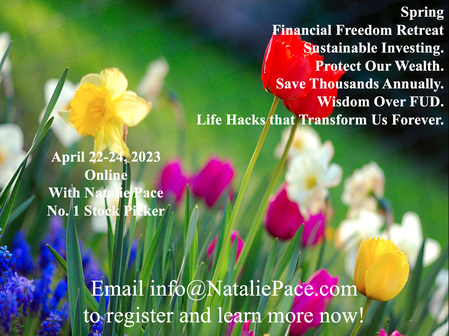 Join us for our New Year, New You Financial Freedom Retreat. April 22-24, 2023. Email [email protected] to learn more. Register by Jan. 31, 2023 to receive a complimentary, private prosperity coaching session and the best price (value over $800). Click for testimonials & details. 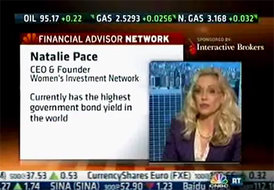 Natalie Wynne Pace is an Advocate for Sustainability, Financial Literacy & Women's Empowerment. Natalie is the bestselling author of The Power of 8 Billion: It's Up to Us and is the co-creator of the Earth Gratitude Project. She has been ranked as a No. 1 stock picker, above over 835 A-list pundits, by an independent tracking agency (TipsTraders). Her book The ABCs of Money remained at or near the #1 Investing Basics e-book on Amazon for over 3 years (in its vertical), with over 120,000 downloads and a mean 5-star ranking. The 5th edition of The ABCs of Money was released on September 17, 2021. Natalie Pace's easy as a pie chart nest egg strategies earned gains in the last two recessions and have outperformed the bull markets in between. That is why her Investor Educational Retreats, books and private coaching are enthusiastically recommended by Nobel Prize winning economist Gary S. Becker, TD AMERITRADE chairman Joe Moglia, Kay Koplovitz and many Main Street investors who have transformed their lives using her Thrive Budget and investing strategies. Click to view a video testimonial from Nilo Bolden. Check out Natalie Pace's Apple Podcast. Watch videoconferences and webinars on Youtube. Other Blogs of Interest Investor IQ Test Investor IQ Test Answers Bonds Lost -26%, Silver Held Strong. 2023 Crystal Ball for Stocks, Bonds, Real Estate, Cannabis, Gold, Silver. Tilray: The Constellation Brands of Cannabis New Year, New Healthier You Tesla's $644 Billion Fall From Mars Silver's Quiet Rally. Free Holiday Gift. Stocking Stuffers Under $10. Cash Burn & Inflation Toasted the Plant-Based Protein Companies Save Thousands Annually With Smarter Energy Choices Is Your FDIC-Insured Cash Really Safe? Giving Tuesday Tips to Make Your Charitable Contribution a Triple Win. Is Your Pension Plan Stealing From You? The FTX Crypto Fall of a Billionaire (SBF). Crypto, Gold, Silver: Not So Safe Havens. Will Ted Lasso Save Christmas? 3Q will be Released This Thursday. Apple and the R Word. Yield is Back. But It's Tricky. The Real Reason Why OPEC Cut Oil Production. The Inflation Buster Budgeting and Investing Plan. No. Elon Musk Doesn't Live in a Boxabl. IRAs Offer More Freedom and Protection Than 401ks. Will There Be a Santa Rally 2022? What's Safe in a Debt World? Not Bonds. Will Your Favorite Chinese Company be Delisted? 75% of New Homeowners Have Buyer's Remorse Clean Energy Gets a Green Light from Congress. Fix Money Issues. Improve Your Relationships. 24% of House Sales Cancelled in the 2nd Quarter. 3 Things to Do Before July 28th. Recession Risks Rise + a Fairly Safe High-Yield Bond DAQO Doubles. Solar Shines. Which Company is Next in Line? Tesla Sales Disappoint. Asian EV Competition Heats Up. 10 Wealth Strategies of the Rich Copper Prices Plunge Colombia and Indonesia: Should You Invest? 10 Misleading Broker/Salesman Pitches. Why are Banks and Dividend Stocks Losing Money? ESG Investing: Missing the E. Bitcoin Crashes. Crypto, Gold and Stocks All Crash. The U.S. House Decriminalizes Cannabis Again. The Risk of Recession in 6 Charts. High Gas Prices How Will Russian Boycotts Effect U.S. Multinational Companies? Oil and Gas Trends During Wartime Russia Invades Ukraine. How Have Stocks Responded in Past Wars? 2022 Crystal Ball in Stocks, Real Estate, Crypto, Cannabis, Gold, Silver & More. Interview with the Chief Investment Strategist of Charles Schwab & Co., Inc. Stocks Enter a Correction Investor IQ Test Investor IQ Test Answers What's Safe in a Debt World? Money Market Funds, FDIC, SIPC: Are Any of Them Safe? My 24-Year-Old is Itching to Buy a Condo. Should I Help Him? The 12-Step Guide to Successful Investing. Gardeners Creating Sanctuary & Solutions in Food Deserts. The Bank Bail-in Plan on Your Dime. Rebalancing Your Nest Egg IQ Test. Answers to the Rebalancing Your Nest Egg IQ Test. Important Disclaimers Please note: Natalie Pace does not act or operate like a broker. She reports on financial news, and is one of the most trusted sources of financial literacy, education and forensic analysis in the world. Natalie Pace educates and informs individual investors to give investors a competitive edge in their personal decision-making. Any publicly traded companies or funds mentioned by Natalie Pace are not intended to be buy or sell recommendations. ALWAYS do your research and consult an experienced, reputable financial professional before buying or selling any security, and consider your long-term goals and strategies. Investors should NOT be all in on any asset class or individual stocks. Your retirement plan should reflect a diversified strategy, which has been designed with the assistance of a financial professional who is familiar with your goals, risk tolerance, tax needs and more. The "trading" portion of your portfolio should be a very small part of your investment strategy, and the amount of money you invest into individual companies should never be greater than your experience, wisdom, knowledge and patience. Information has been obtained from sources believed to be reliable. However, NataliePace.com does not warrant its completeness or accuracy. Opinions constitute our judgment as of the date of this publication and are subject to change without notice. This material is not intended as an offer or solicitation for the purchase or sale of any financial instrument. Securities, financial instruments or strategies mentioned herein may not be suitable for all investors. 2023 Investor IQ Test Are you an Einstein in investing? A complete novice? Check your Investor IQ with the 26 questions below. If you score 21 correct answers or higher, then you’re in great shape! If you score 18, then you are C-level. Below 18 correct indicates that you are in need of a refresher course in life math. (Even math geniuses might not know the basics of Wall Street…) So, consider joining us at our next Investor Educational Retreat.
Answers are listed in the article "Investor IQ Test Answers 2023" in my blog at https://www.nataliepace.com/blog/ https://www.nataliepace.com/blog/answers-to-the-2023-investor-iq-test Email info @ NataliePace.com or call 310-430-2397 if you have any questions about this test, or about the answers, or if you are interested in learning time-proven investing, budgeting, debt reduction, home buying solutions that will transform your life. 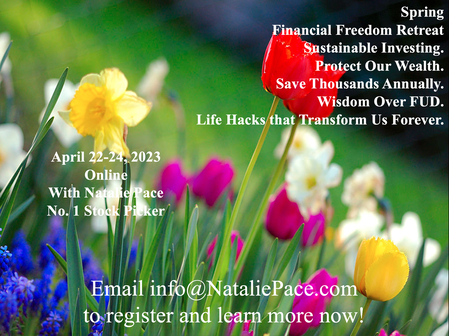 Join us for our New Year, New You Financial Freedom Retreat. April 22-24, 2023. Email [email protected] to learn more. Register by Jan. 31, 2023 to receive a complimentary, private prosperity coaching session and the best price (value over $800). Click for testimonials & details.  Natalie Wynne Pace is an Advocate for Sustainability, Financial Literacy & Women's Empowerment. Natalie is the bestselling author of The Power of 8 Billion: It's Up to Us and is the co-creator of the Earth Gratitude Project. She has been ranked as a No. 1 stock picker, above over 835 A-list pundits, by an independent tracking agency (TipsTraders). Her book The ABCs of Money remained at or near the #1 Investing Basics e-book on Amazon for over 3 years (in its vertical), with over 120,000 downloads and a mean 5-star ranking. The 5th edition of The ABCs of Money was released on September 17, 2021. Natalie Pace's easy as a pie chart nest egg strategies earned gains in the last two recessions and have outperformed the bull markets in between. That is why her Investor Educational Retreats, books and private coaching are enthusiastically recommended by Nobel Prize winning economist Gary S. Becker, TD AMERITRADE chairman Joe Moglia, Kay Koplovitz and many Main Street investors who have transformed their lives using her Thrive Budget and investing strategies. Click to view a video testimonial from Nilo Bolden. Check out Natalie Pace's Apple Podcast. Watch videoconferences and webinars on Youtube. Other Blogs of Interest Investor IQ Test Answers Bonds Lost -26%, Silver Held Strong. 2023 Crystal Ball for Stocks, Bonds, Real Estate, Cannabis, Gold, Silver. Tilray: The Constellation Brands of Cannabis New Year, New Healthier You Tesla's $644 Billion Fall From Mars Silver's Quiet Rally. Free Holiday Gift. Stocking Stuffers Under $10. Cash Burn & Inflation Toasted the Plant-Based Protein Companies Save Thousands Annually With Smarter Energy Choices Is Your FDIC-Insured Cash Really Safe? Giving Tuesday Tips to Make Your Charitable Contribution a Triple Win. Is Your Pension Plan Stealing From You? The FTX Crypto Fall of a Billionaire (SBF). Crypto, Gold, Silver: Not So Safe Havens. Will Ted Lasso Save Christmas? 3Q will be Released This Thursday. Apple and the R Word. Yield is Back. But It's Tricky. The Real Reason Why OPEC Cut Oil Production. The Inflation Buster Budgeting and Investing Plan. No. Elon Musk Doesn't Live in a Boxabl. IRAs Offer More Freedom and Protection Than 401ks. Will There Be a Santa Rally 2022? What's Safe in a Debt World? Not Bonds. Will Your Favorite Chinese Company be Delisted? 75% of New Homeowners Have Buyer's Remorse Clean Energy Gets a Green Light from Congress. Fix Money Issues. Improve Your Relationships. 24% of House Sales Cancelled in the 2nd Quarter. 3 Things to Do Before July 28th. Recession Risks Rise + a Fairly Safe High-Yield Bond DAQO Doubles. Solar Shines. Which Company is Next in Line? Tesla Sales Disappoint. Asian EV Competition Heats Up. 10 Wealth Strategies of the Rich Copper Prices Plunge Colombia and Indonesia: Should You Invest? 10 Misleading Broker/Salesman Pitches. Why are Banks and Dividend Stocks Losing Money? ESG Investing: Missing the E. Bitcoin Crashes. Crypto, Gold and Stocks All Crash. The U.S. House Decriminalizes Cannabis Again. The Risk of Recession in 6 Charts. High Gas Prices How Will Russian Boycotts Effect U.S. Multinational Companies? Oil and Gas Trends During Wartime Russia Invades Ukraine. How Have Stocks Responded in Past Wars? 2022 Crystal Ball in Stocks, Real Estate, Crypto, Cannabis, Gold, Silver & More. Interview with the Chief Investment Strategist of Charles Schwab & Co., Inc. Stocks Enter a Correction Investor IQ Test Investor IQ Test Answers What's Safe in a Debt World? Money Market Funds, FDIC, SIPC: Are Any of Them Safe? My 24-Year-Old is Itching to Buy a Condo. Should I Help Him? The 12-Step Guide to Successful Investing. Gardeners Creating Sanctuary & Solutions in Food Deserts. The Bank Bail-in Plan on Your Dime. Rebalancing Your Nest Egg IQ Test. Answers to the Rebalancing Your Nest Egg IQ Test. Important Disclaimers Please note: Natalie Pace does not act or operate like a broker. She reports on financial news, and is one of the most trusted sources of financial literacy, education and forensic analysis in the world. Natalie Pace educates and informs individual investors to give investors a competitive edge in their personal decision-making. Any publicly traded companies or funds mentioned by Natalie Pace are not intended to be buy or sell recommendations. ALWAYS do your research and consult an experienced, reputable financial professional before buying or selling any security, and consider your long-term goals and strategies. Investors should NOT be all in on any asset class or individual stocks. Your retirement plan should reflect a diversified strategy, which has been designed with the assistance of a financial professional who is familiar with your goals, risk tolerance, tax needs and more. The "trading" portion of your portfolio should be a very small part of your investment strategy, and the amount of money you invest into individual companies should never be greater than your experience, wisdom, knowledge and patience. Information has been obtained from sources believed to be reliable. However, NataliePace.com does not warrant its completeness or accuracy. Opinions constitute our judgment as of the date of this publication and are subject to change without notice. This material is not intended as an offer or solicitation for the purchase or sale of any financial instrument. Securities, financial instruments or strategies mentioned herein may not be suitable for all investors. Answers to the 2023 Investor IQ Test. by Natalie Pace. If you score 21 correct answers or higher, then you’re in great fiscal shape! If you score 18, then you are C-level. Below 18 correct indicates that you are in need of a refresher course in life math. We’ve hosted attendees with a Ph.D. in math or computer science, with MBAs, options traders and other Wall Street pros. Our strategies are enthusiastically recommended by Nobel Prize-winning economist Gary Becker, former TD AMERITRADE chairman and CEO Joe Moglia and thousands of Main Street investors. So, consider joining us at our next Investor Educational Retreat. 1. What is the most important question you should ask your Certified Financial Advisor before hiring him/her? "How much of my portfolio should I keep safe?" This question will help you to determine whether you are dealing with a trusted professional who is looking after your best interest, or a salesman who is looking to make a quick buck. The answer to this question is, "A percentage equal to your age.” As stocks are trading at elevated prices, bonds are illiquid and negative-yielding, and there is a lot of talk about a recession, it would be even better if s/he adds, “But given the valuation and leverage concerns, we might consider overweighting into safety." If they just sidestep this question and redirect you to a risk tolerance questionnaire, that is a red flag. If they tell you not to worry because things always work out in the end, that it a sure sign that you are adopting the Buy & Hope plan, which wipes investors out in recessions. One more important thing. Since bonds are losing value, are highly leveraged, subject to credit risk, vulnerable to capital loss and are illiquid to boot, you need to understand what’s safe, rather than just rely upon bonds or money market funds. Now is the time to clearly know exactly what you own and why. Consider getting an unbiased 2nd opinion. Call 310-430-2397 or email [email protected] for pricing and details. 2. What are 3 red flags that your financial plan is on a Wall Street rollercoaster and at risk of losing half or more of its value?
Remember: Your nest egg recovered in the pandemic because the Treasury printed up $4.5 trillion and threw free, easy cash at everyone. Student loans, foreclosures and evictions were paused. The wind has been at our backs. 2022 was one of the worst performing years of the 21st Century, and 2023 is expected to be challenging, with the risk of a recession in the U.S. and Europe. When/if the tides turn, losses can incur quite swiftly due to the high valuations. (The -38% plunge between February 19, 2020 and March 23, 2020 was the fastest that any bull market had ever about-faced into a bear.) Wisdom and time-proven systems are the cure. (Our easy-as-a-pie-chart nest egg strategies, with annual rebalancing, earned gains in the Dot Com and Great Recessions and have outperformed the bull markets in between.) 3. How much of your nest egg should you keep safe? A percentage equal to your age. Consider overweighting more into safety when assets are overpriced, the economy is stumbling, a pandemic is closing borders or you are nervous. Again, in today’s Debt World, it is important to know what’s safe. Long-term bonds are losing value and are illiquid, which makes them substantially riskier than most investors realize. (Our safe side isn’t supposed to lose money!) Money market funds have redemption gates and liquidity fees, are vulnerable to capital loss and are not FDIC-insured. Annuities are more vulnerable than most investors know because insurance companies are carrying a lot of risk and leverage, and annuities are not federally insured. 4. What's safe? Getting safe is a two-step process. First, you must keep your money, which means that you want to have as much of your cash as you can in federally insured accounts, such as FDIC or CDIC. Liquidity allows you to buy low, when everyone else is cash-strapped. After you have protected your wealth from a recession, you might consider short-term, creditworthy bonds, and take a laddering approach with them. Hard assets will hold their value better than paper assets in a Debt World. So, the mantra is “safe, income-producing hard assets that you purchase for a good price.” You have to also consider what will safely produce income in a post-pandemic world. Real estate is at an all-time high in the U.S., so it will be difficult to purchase for a good price in 2022. (There is low-hanging fruit in this area that many people never think about.) You don’t want to be all in on hard assets because you also need liquidity and cash flow. Some of the best hard asset investments are those that reduce your monthly expenses (for life). We spend one full day on What’s Safe at the Investor Educational Retreats. Educate yourself now on the best income-producing hard assets that are right for you, so that when prices are more attractive, you know what you want and have the means to take action and close the deal. Call 310-430-2397 to learn more. Interest rates rocketed up in 2022 and are expected to rise a little more in 2023. With a little searching, you might find a creditworthy short-term bond that pays you for the risk you take on. In the meantime, if you’re sold into something with a term of 10+ years, it could lose money, become illiquid and also carry an opportunity cost by tying your money up. 5. What is the average return of stocks over the last 10 and 30 years? Large cap stocks earned 12.56% annualized over the last decade and 9.65% over the 30-year period (source: Morningstar). Small cap stocks performed at 10.32% and 10.77%, respectively. (Asset performance graphs, and more data and resources, are distributed to Retreat Attendees.) 6. What is the average return of gold over the last 10 and 30 years? Gold returned 0.01% annualized over the 10-year period and 5.49% over the last 30 years. Gold mining stocks doubled in 2016, were flat in 2017, and doubled (again) off their 2018 lows by August, 2020. Regular rebalancing (1-3 times a year) prompts us to trim high and add low. The all-time high for gold of $2,089.20 was hit on January 5, 2021. The previous high of $1,895/ounce in gold in September of 2011, occurred the month after S&P Global Ratings stripped the U.S. of its AAA credit score. That was in the wake of a Congress/White House showdown over the Debt Ceiling. There could be another brawl this year, as the Debt Ceiling was hit on Jan. 18, 2023, and extraordinary measures to pay bills may only work until June of 2023. 7. What is the average return of real estate over the last 10 and 30 years? Over the last decade, real estate has performed at 8.8% annualized. (The devastating losses of the Great Recession, when over 20 million homes were foreclosed on, are no longer included in this statistic.) Over a 30-year period, real estate increased 8.2% annualized. Real estate prices are at an all-time high. However, the trend has been down since June. Real estate is largely unaffordable to many Americans in many cities. According to AttomData, average income-earners are unable to purchase a home in 99% of U.S. counties. Rising interest rates have made this problem a crisis. Buying a new home would cost 35% of the average national wage. 2.9% of U.S. homes are still seriously underwater on their mortgage – even with prices higher than ever. (This is largely due to loan mods.) There is nothing worse than buying high in real estate, and watching the value of your home sink below the amount that you owe on it! It can ruin your life and FICO score for years, if not decades. Be sure to read the Real Estate section of the 5th edition of The ABCs of Money. There are at least seven real-world case studies to inform your real estate decisions. 8. What was the top performing investment in 2022? Almost everything lost money in 2022, with the exception of oil and silver. It was more a question of how much was lost. Even bonds, which are supposed to be the safe side of your portfolio, were big losers. Oil gained 6.7% in 2022, after soaring as high as $130.50/barrel in June of 2022. Silver posted gains of 4.6%, while gold was flat. It’s important to remember that oil prices were the biggest losers of 2020. In April of 2020, oil prices went negative, for an all-time low price of -$37.63/barrel. (Futures investors were paying not to take delivery!) Of course, lockdowns are rare. However, there is another trend that could eat into oil prices – the popularity of electric vehicles. Long-term bonds lost -16-26%. (Again, the safe side of your nest egg is not supposed to lose money.) 9. How long will it take for you to have a nest egg as big as your annual salary if you put 10% of your income into a tax-protected (and financial predator proof) individual retirement plan and invest in stocks and bonds*? 7 ½ years. This is based upon 10% average annualized returns of stocks and bonds over a 30-year period, which is what happens normally. (Stocks still returned about 10% between 1993 and 2022. Bonds performed in the 4-5% range over that same period.) 10. How long will it take for your nest egg to earn more than you earn, if you put 10% of your income into a tax-protected (and financial predator proof) individual retirement plan and invest in stocks and bonds*? 25 years. This is based upon 10% average annualized returns of stocks and bonds over a 30-year period, which is what happens normally. (Stocks still returned about 10% between 1993 and 2022. Bonds performed in the 4-5% range over that same period.) 11. What’s the safest investment in a slow-growth, high-debt world? Bonds are starting to reward investors. However, avoiding the problems is tricky. Even FDIC-insured cash is paying a little. However, you have to know the loopholes and read the fine print. Hard assets hold their value better than paper assets when there is too much paper floating around (debt, like there is today). However, pouring everything into real estate can be vulnerable, as you still need liquidity. The safe side has opportunity and money pits, which is why we spend one full day on this topic at our Investor Educational Retreats. I’ll be hosting a Bond Master Class on Jan. 28, 2023 (Saturday). Email [email protected] to learn more. There are some excellent safe, income-producing, value-priced hard assets that are worth considering now, which most people are not aware of. Most, but not all, hard assets are overpriced right now. If you are equity-rich, you still want to do the analysis to make sure that will remain the case if real estate asset prices decline significantly in value, as they did in the Great Recession. Be sure to read the Real Estate section of the 5th edition of The ABCs of Money. In addition to looking for some return on the safe side, think capital preservation. Liquidity will allow you to buy low when things are on sale. 12. Which countries hold the most gold? The United States is the top holder of gold worldwide, by far, with 8,133.5 tons, followed by All ETFs, Germany, the International Monetary Fund, Italy, France, Russia and China. Though these countries didn’t add to their holdings in 2022, China and Russia have been on a gold buying spree since 2008. Reports are that they are trading oil and other commodities using their own currency backed by gold, in an effort to break free from the dollar hegemony. Additionally, there were multiple reports between 2011 and 2017 that the U.S. banks and brokerages were selling their client’s gold assets (sometimes without permission) in a price fixing scandal, which kept gold prices in the U.S. and Europe lower than the rest of the world. Deutsche Bank settled a lawsuit, and agreed on Dec. 2, 2016 to name names of other banks that were price-fixing gold. Was this the reason that gold was the worst performing asset over the last decade? 13. Are annuities safe? Insurance products, including life insurance and annuities, aren't insured by the FDIC. If we had not bailed out AIG in 2007, more than 50 million annuity holders would have been in real trouble. Your annuity product is only as safe as the insurance company that is selling it to you. Insurance companies don’t fare well in recessions, historically. Insurance products are like being a renter. If you can’t pay, you get tossed out. Many people pay for life insurance their entire working life, and then can’t pay when they retire – when they are really most in need. If you put that money into your own tax protected account, you could save on taxes, compound your gains, and it would be there for you when you retire, even offering some income, in addition to the capital. (Billionaire Peter Thiel reportedly has over $4 billion in his Roth IRA. Regular contributions, investing and compounding gains are that powerful.) When you can no longer contribute to your own retirement plan and Health Savings Account, they support you. You can be a better steward of your wealth than any insurance company, once you learn The ABCs of Money that we all should have received in high school. It’s time to be the boss of your money. 14. What were the top performing and the worst months for stocks over the past five years? July, November and April performed the best over the 5-year period (in that order), on average. February, March, September and December were all negative months. Retreat Attendees receive charts of the top-performing months and election year trends. If you’re interested in learning more about our 3-day, life transformational investor educational retreats, call 310-430-2397 or email [email protected]. 15. What was the top performing quarter for stocks over the past twenty years? October through December – the Santa Rally – performed the best over the 20-year period, but saw greater volatility in the 5-year trend, with negative returns in December. December 2018 was the worst performing December in history, killing the historical returns of the Santa Rally that year. Understanding seasonal trends can help you with your annual rebalancing in your nest egg, and with your selling strategy for your trading. We spend one full day on what’s hot, teaching you how to identify the best investments of the year, in our Investor Educational Retreats. 16. What was the worst investment in 2022, NASDAQ, gold, the Dow Jones Industrial Average, bonds, cannabis, oil or real estate? Cannabis, plant-based protein, Tesla and crypto were the worst investments in 2022. As one example, Tilray soared to $67/share on February 10, 2021. It was trading at under $3.00 on Jan. 19, 2023. Bonds were pretty poor performers, too, as you can see in the charts and comments above. Stay tuned into my blogs and videoconferences for ongoing news, analysis and vital investor information. Email [email protected] with VIDEOCON in the subject line to receive the logon information for the next monthly videoconference. 17. Which year is expected to perform better, 2023 or 2024, based upon historical returns of election years? 2023 is a pre-election year. Pre-election years are the strongest in the election-year cycle with annualized gains of 11.6%-16%. Election years can be good. However, we’ve seen some disasters, such as 2008 (Great Recession) and 2000 (beginning of the Dot Com Recession). 2023 may host a recession, which could reverse the pre-election year trend. Stocks drop in recessions, and have hosted devastating losses in the 21st Century. Over the last 10-20 years, mid-term years have been the worst performers, with annual gains of -5% over the 10-year period. U.S. stocks are still quite pricey, which could also mute gain possibilities this year. As you can see in the Buffett Indicator below (Warren Buffet’s favorite valuation tool), stocks are far more expensive now than they were before the Dot Com Recession or the Great Recession. Having expensive stocks and real estate, as government support is pulled back, has increased the volatility on Wall Street. There were wild rides last year and this is likely to continue as the hot and fast money seeks to find incremental gains. 18. How many companies are in the Dow Jones Industrial Average? 30 companies. Many are household brands. Most have been around for over half a century, and many are carrying far more debt than the value of the company. Leverage has begun to concern economists. Over 50% of the S&P500 corporate bonds are at the lowest rung of investment grade, or at junk bond status. This includes a lot of banks, brokerages, financial services and insurance companies. Ford Motor Company was downgraded to junk bond status in fall of 2019. If you don’t understand how much debt corporations are holding, you can learn how to use this valuable tool to increase the performance of your nest egg on the 2nd day of the Investor Educational Retreat. Click to access the names of the 30 companies. The Dow Jones Industrial Average was launched in 1896. 19. How many Dow Jones Industrial Average companies were bailed out or went bankrupt in the Great Recession? Most people don't realize that 20% of the companies of the DJIA (6 companies: AIG, American Express, Bank of America, Citi, JP Morgan and General Motors) were bailed out or went bankrupt in the Great Recession. Others, like General Electric and Ford, received support. Learn more about how to add in performance and avoid the bailouts in your funds and retirement account at the Investor Educational Retreat and in The ABCs of Money. Due to debt and leverage, it is important to remember that the higher the dividend is, the higher the risk is (read the chapter of the same name in The ABCs of Money for additional information). GE investors learned this the hard way. 20. Which index has performed better since the bottom of the pandemic in March of 2020, the Dow Jones Industrial Average or the NASDAQ Composite Index? The NASDAQ scored 43.6% gains in 2020, with the DJIA limping along at 7.2%. However, in 2022, the pain was more concentrated in the NASDAQ, with the index losing -33%. Today, both indices are on par over the 3-year period. This is why our pie chart system includes both value and growth, as well as annual rebalancing. Using this system, investors can capture gains in technology and biotechnology at the high, and buy low when recessions create opportunities. Learn more at the Investor Educational Retreat and in The ABCs of Money. 21. How much did investors lose between February 19, 2020 and March 23, 2020? Both the Dow Jones Industrial Average and the NASDAQ Composite Index dropped 35%. Some of the hottest stocks, including Nvidia (-38%), lost even more. However, technology stocks surged, once everyone started working and doing everything from home. 22. How much did investors lose during the Great Recession and the Dot Com Recession? The Dow Jones Industrial Average lost 55% in the Great Recession. The Dot Com Recession saw a drop in the NASDAQ Composite Index of up to 78%. It took the NASDAQ 15 years to crawl back to even. Returns of the Dow Jones Industrial Average Oct. 2007 – March 2009 Returns of the Nasdaq Composite Index March 2000 – Oct. 2002 You can’t afford to lose more than half every 8-10 years, crawl back to even, only to lose more than half again – particularly if you are over the age of 50. It’s time to step off of the Wall Street Rollercoaster and into time-proven, easy systems that protect your wealth, while outperforming the major indices. 23. Does Buy & Hope work? If not, what does? Buy & Hope lost more than half in 2000 and 2008 and 35% (or more) between February and March of 2020. Due to the amount of debt and leverage, and the slow rate of growth, Buy and Hold will not work going forward (until those problems are dealt with and cycled through). Our easy-as-a-pie-chart nest egg strategies earned gains in the Dot Com and Great Recessions and have outperformed the bull markets in between. Working off of the pie charts, instead of the brokerage statement, allows us to take the emotions out of the plan, and rely, instead, upon a time-proven system. This pie chart system, with annual rebalancing, is a buy low, sell high plan on auto-pilot – prompting you to do what you should be doing at each rebalancing session. Email [email protected] or call 310-430-2397, if you’d like to customize your own sample pie chart (free) or receive an unbiased 2nd opinion through our private coaching program. (We teach you this at the Investor Educational Retreat.) One more thing: low interest rates create asset bubbles. That is one of the reasons why assets drop so severely and swiftly in 21st Century recessions. Having the right amount safe and knowing what is safe in a Debt World is our best protection. 24. Why is it that so many investors are unable to Buy Low and Sell High? Buy low, sell high is a mantra that everyone knows. So, why do so few investors do it? There are a few reasons…
25. What is the 3-Ingredient Recipe for Cooking up Profits? 1. Start with what you know and love 2. Pick the Leader 3. Buy low; sell high (easy to say; hard to do) This recipe, along with my Stock Report Card, Four Questions, market strategies and data drilling, is how I earned the ranking of number one stock picker. The recipe is easy. Learning how to use these tools requires practice. You must begin by locating and analyzing data, which is actually less time and far more informative than reading blogs, which have a fraction of the information and might be written by a novice. Come to our next Investor Educational Retreat to learn firsthand how easy and effective this strategy is, and why it has worked through bull and bear markets for more than two decades now. Call 310-430-2397 or email [email protected] to learn more. If you don’t like stock picking, no problem. Our easy-as-a-pie-chart nest egg strategy is designed for money while you sleep. Once you set up your financial house properly, you’ll just need to Spring Clean it once or twice a year. 26. What are the Four Questions for Picking Winning Stocks? The Four Questions for Picking Winning Stocks. 1. What’s the product? 2. Who’s the customer? 3. Can the company continue to make a superior product going forward and get it to their customer at the best price before the competition? 4. Who’s the CEO and can s/he motivate the employees to make the best product faster, better and cheaper than the competition? As you can see, three out of four questions can be answered by being a good customer of the company. The 3rd question will benefit from you completing a Stock Report Card, and understanding how to use the data. So, the more you know about a company (ingredient #1 of the recipe for Cooking Up Profits), the easier it is to pick the leader. In Put Your Money Where Your Heart Is, I used these questions and tools to compare two companies. Google scored an A (in 2006, when it had only been publicly traded for 2 years). The Dow Component that I gave a D- to went on to declare bankruptcy a few years after this prediction was made (General Motors). Using the Stock Report Card and 4 Questions, I identified both of these trends years before these major events occurred. The book was written in 2006, three years before GM went bankrupt. In fact, I applauded Google on national television before its IPO, when most pundits pooh-poohed it. This is the power of asking the right questions and relying upon the data, rather than just listening to the mainstream media. (We also warned about General Electric years before it was booted from the DJIA.) So, are you an Einstein in investing? A complete novice? If you scored 21 correct answers or higher, then you’re in great shape! If you scored 18 right, then you are C-level. Below 18 correct indicates that you are in need of a refresher course in life math. (So, consider joining us at our next Investor Educational Retreat.) Call 310-430-2397 or email [email protected] to learn more. The High Cost of Free Advice A few years ago, our team was told yet another story about someone who lost a substantial amount of money by trusting the "free" advice of a financial advisor. Learn the truth about commissions & conflicts of interest & how to get a 2nd opinion now in the guest blog “They Trusted Him. Now He Doesn’t Return Phone Calls.” Know what you own. Protect your future now! Data Sources: (c) 2020 Morningstar Direct, S&P Dow Jones Indices, the World Gold Council and The National Association of Realtors. All rights reserved. Used with permission. The information contained herein: (1) is proprietary; (2) may not be copied or distributed; and (3) is not warranted to be accurate, complete, or timely. Neither Morningstar, the National Association of Realtors, the World Gold Council, Natalie Pace, nor any content providers are responsible for any damages or losses arising from any use of this information. Past performance is no guarantee of future results. 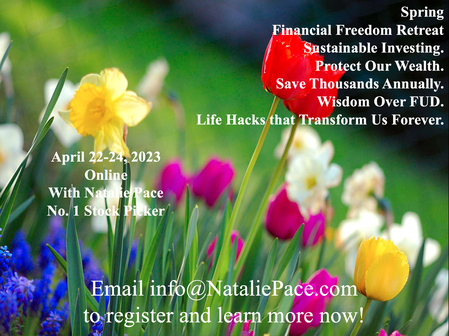 Join us for our New Year, New You Financial Freedom Retreat. April 22-24, 2023. Email [email protected] to learn more. Register by Jan. 31, 2023 to receive a complimentary, private prosperity coaching session and the best price (value over $800). Click for testimonials & details. 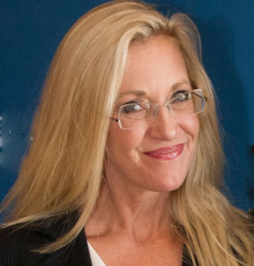 Natalie Wynne Pace is an Advocate for Sustainability, Financial Literacy & Women's Empowerment. Natalie is the bestselling author of The Power of 8 Billion: It's Up to Us and is the co-creator of the Earth Gratitude Project. She has been ranked as a No. 1 stock picker, above over 835 A-list pundits, by an independent tracking agency (TipsTraders). Her book The ABCs of Money remained at or near the #1 Investing Basics e-book on Amazon for over 3 years (in its vertical), with over 120,000 downloads and a mean 5-star ranking. The 5th edition of The ABCs of Money was released on September 17, 2021. Natalie Pace's easy as a pie chart nest egg strategies earned gains in the last two recessions and have outperformed the bull markets in between. That is why her Investor Educational Retreats, books and private coaching are enthusiastically recommended by Nobel Prize winning economist Gary S. Becker, TD AMERITRADE chairman Joe Moglia, Kay Koplovitz and many Main Street investors who have transformed their lives using her Thrive Budget and investing strategies. Click to view a video testimonial from Nilo Bolden. Check out Natalie Pace's Apple Podcast. Watch videoconferences and webinars on Youtube. Other Blogs of Interest Bonds Lost -26%, Silver Held Strong. 2023 Crystal Ball for Stocks, Bonds, Real Estate, Cannabis, Gold, Silver. Tilray: The Constellation Brands of Cannabis New Year, New Healthier You Tesla's $644 Billion Fall From Mars Silver's Quiet Rally. Free Holiday Gift. Stocking Stuffers Under $10. Cash Burn & Inflation Toasted the Plant-Based Protein Companies Save Thousands Annually With Smarter Energy Choices Is Your FDIC-Insured Cash Really Safe? Giving Tuesday Tips to Make Your Charitable Contribution a Triple Win. Is Your Pension Plan Stealing From You? The FTX Crypto Fall of a Billionaire (SBF). Crypto, Gold, Silver: Not So Safe Havens. Will Ted Lasso Save Christmas? 3Q will be Released This Thursday. Apple and the R Word. Yield is Back. But It's Tricky. The Real Reason Why OPEC Cut Oil Production. The Inflation Buster Budgeting and Investing Plan. No. Elon Musk Doesn't Live in a Boxabl. IRAs Offer More Freedom and Protection Than 401ks. Will There Be a Santa Rally 2022? What's Safe in a Debt World? Not Bonds. Will Your Favorite Chinese Company be Delisted? 75% of New Homeowners Have Buyer's Remorse Clean Energy Gets a Green Light from Congress. Fix Money Issues. Improve Your Relationships. 24% of House Sales Cancelled in the 2nd Quarter. 3 Things to Do Before July 28th. Recession Risks Rise + a Fairly Safe High-Yield Bond DAQO Doubles. Solar Shines. Which Company is Next in Line? Tesla Sales Disappoint. Asian EV Competition Heats Up. 10 Wealth Strategies of the Rich Copper Prices Plunge Colombia and Indonesia: Should You Invest? 10 Misleading Broker/Salesman Pitches. Why are Banks and Dividend Stocks Losing Money? ESG Investing: Missing the E. Bitcoin Crashes. Crypto, Gold and Stocks All Crash. The U.S. House Decriminalizes Cannabis Again. The Risk of Recession in 6 Charts. High Gas Prices How Will Russian Boycotts Effect U.S. Multinational Companies? Oil and Gas Trends During Wartime Russia Invades Ukraine. How Have Stocks Responded in Past Wars? 2022 Crystal Ball in Stocks, Real Estate, Crypto, Cannabis, Gold, Silver & More. Interview with the Chief Investment Strategist of Charles Schwab & Co., Inc. Stocks Enter a Correction Investor IQ Test Investor IQ Test Answers What's Safe in a Debt World? Money Market Funds, FDIC, SIPC: Are Any of Them Safe? My 24-Year-Old is Itching to Buy a Condo. Should I Help Him? The 12-Step Guide to Successful Investing. Gardeners Creating Sanctuary & Solutions in Food Deserts. The Bank Bail-in Plan on Your Dime. Rebalancing Your Nest Egg IQ Test. Answers to the Rebalancing Your Nest Egg IQ Test. Important Disclaimers Please note: Natalie Pace does not act or operate like a broker. She reports on financial news, and is one of the most trusted sources of financial literacy, education and forensic analysis in the world. Natalie Pace educates and informs individual investors to give investors a competitive edge in their personal decision-making. Any publicly traded companies or funds mentioned by Natalie Pace are not intended to be buy or sell recommendations. ALWAYS do your research and consult an experienced, reputable financial professional before buying or selling any security, and consider your long-term goals and strategies. Investors should NOT be all in on any asset class or individual stocks. Your retirement plan should reflect a diversified strategy, which has been designed with the assistance of a financial professional who is familiar with your goals, risk tolerance, tax needs and more. The "trading" portion of your portfolio should be a very small part of your investment strategy, and the amount of money you invest into individual companies should never be greater than your experience, wisdom, knowledge and patience. Information has been obtained from sources believed to be reliable. However, NataliePace.com does not warrant its completeness or accuracy. Opinions constitute our judgment as of the date of this publication and are subject to change without notice. This material is not intended as an offer or solicitation for the purchase or sale of any financial instrument. Securities, financial instruments or strategies mentioned herein may not be suitable for all investors. Bonds are down by -26.5%. Stocks Dropped by a Third. A review of stocks, bonds, real estate, crypto, gold and silver in 2022. If you thought your stock performance was hard to look at, take a look at the performance of long-term Treasury bonds in 2022. As you can see in the one-year performance chart above, long-term government bonds were some of the worst performers of the year, with lost value of -26.08% (source: Morningstar Direct). The Pimco BOND ETF sank -16.5%. Bonds are supposed to be the safe side of your portfolio in normal bear markets. Clearly, we’re not in normal times. Since long-term bonds lost more than the S&P500® in 2022, protecting the safe side is as important as our stocks and funds. There are solutions for the safe side. It’s important to know what’s safe in a Debt World. (Keep reading.) You might start by checking out my Yield is Back blog and videoconference. As you can see in the chart at the top of this blog, most assets were losers. It was just a question of how much. Although real estate is likely to pull out of 2022 with year-over-year gains, prices are down -11% from the June 2022 highs. The cities that ran up the highest in 2021 have seen the largest price downturns and rising inventory. There will continue to be reports and press releases that emphasize year-over-year gains in real estate that exclude the downtrend. Gold was flat, while silver attempted a quiet rally. The technology and biotech heavy NASDAQ Composite Index dropped -33% in 2022. Should You Just Wait and See? Or is now the time to protect your wealth? What’s at stake? In 21st Century recessions, Buy & Hope investors can lose up to half of their wealth before they realize it. Stocks dropped almost 40% in just four weeks in March 2020, in the early days of the pandemic. The Dow Jones Industrial Average bottomed out at 6,547 on March 9, 2009, a loss of -55%. It can then take 8-15 years to crawl back to even. Meanwhile, life is rough and your FICO score is in the toilet. A 21st Century strategy that works is proper diversification, annual rebalancing, and making sure that your safe side isn’t vulnerable – knowing what is safe in a world of inflation, leverage and rising interest rates. That system is as easy as a pie chart. It’s very important to always have an appropriate portion of your wealth protected from losses. As we get closer to retirement, we can’t afford to lose principal. We need to keep our nest egg intact. So, we start by always keeping a percentage equal to our age safe. Overweight an additional amount of our wealth safe when we see economic storms, like a recession, on the horizon. You can personalize your own sample pie chart using our free web app. Email [email protected] with WEB APPS in the subject line for a link. Another key strategy is regular rebalancing to capture gains – once, twice or three times a year. This helps us to sell high when an asset has been a super performer, and buy low when stocks are finally on sale again. Market timing doesn’t work. As you can see from the Buffett Indicator below, which is a measure of total stock value compared to GDP, stocks are still very expensive. This is yet another indicator that getting properly diversified and protecting our wealth now is very important. It's Not Too Late If we wait for the headlines that we’re in a recession, it’s too late to protect our wealth. The official announcement doesn’t come until stocks have almost hit rock bottom. It may feel like stocks have dropped a lot. However, in the context of the other 21st Century recessions, if history repeats itself, they could drop another 30% or more than they already have. Additionally, proper diversification means that we can select a few funds that could go up if stocks sink. We’ve seen a quiet rally in silver, while gold has been quite resilient. It’s easy to add a gold or silver fund to one of our hot slices. Utilities and consumer staples tend to be more buoyant. Some countries in the world are expected to have a stronger economy in 2022, and many are paying dividends. Long-term bonds lose value as interest rates rise, and are at risk of illiquidity. In a recession, creditworthiness typically erodes. Our mantra for bonds is to keep the terms short, the creditworthiness high and to ladder them. There are a number of other assets to consider that could preserve our wealth, while offering a safe yield. Take Our Wealth Challenge Add up everything you have in your retirement accounts, savings, brokerage accounts, etc. Once you get the total, divide it by half. Then ask yourself, "Am I really willing to risk losing half of my wealth? Should I have blind faith that someone else is protecting my future? Or is now the time to be the boss of my money and know exactly what I own and why, and what a time-proven plan looks like?" (Again, that plan is easy-as-a-pie-chart.) 401ks and RSPs have more restrictive policies. However, a carefully-crafted plan can be constructed even with those constraints. Even if you’re feeling equity rich or that you have a "conservative" allocation in your portfolio, you are likely at risk of devastating losses with the added horror of being invested in illiquid assets where you cannot access your money or make changes without losing a lot. Conservative allocations typically concentrate their investments in long-term bonds, and can hold up to 20% of junk bonds to boot. Buy & Hope Doesn't Work. When you lose more than half, then you have to spend the bull markets praying and hoping you’ll crawl back to even. That is not a plan. That's a Wall Street rollercoaster. A Time-Proven, 21st Century Plan When you properly diversify your wealth, you can protect yourself from losses in the downturns, and build more wealth during the bull markets. Regular rebalancing with proper diversification is an easy, buy low, sell high plan on auto-pilot. Trust Results Those who used Natalie Pace’s easy, affordable strategies earned gains in the Dot Com and Great Recessions and outperformed the bull markets in between, using less time and money than most people spend. Click to watch Nilo Bolden’s testimonial. Email [email protected] if you’d like to read more feedback and testimonials from attendees, economists and other VIPs. Learn the Life Math that We All Should Have Received in High School We have many free and low-cost resources for anyone who desires to adopt a Thrive Budget, to protect their wealth, to send their teen to college for a better degree at half the cost, and to save thousands annually with smarter energy choices. Email [email protected] if you are interested in receiving links to Natalie Pace’s podcasts, blogs, books and videoconferences on these topics. Just indicate the subject you’re interested in. If you’d like to learn and implement our time-proven 21st Century wealth plan now, register to attend our Jan. 20-22, 2023 Financial Freedom Retreat. You can also order a detailed unbiased 2nd opinion on your current portfolio from me personally (through our private coaching program). Do you have a recession-proof plan in place, in case there is a recession in 2023 (like most analysts are predicting)? Email [email protected] or call 310-430-2397 now. Yes. The Next Recession Could Be Worse Than the Great Recession. The mainstream headlines are leaning into the narrative that we could have a soft landing, rather than a full-blown recession. However, few are looking at the prices of stocks and the massive leverage in debt. (However, many of us receive emails telling us that the dollar is going to become worthless and that central banks are going to fail.) According to the Buffett Indicator, stocks are more expensive than they were in the Dot Com Recession, when the NASDAQ Composite Index dropped by 78%. Using the CAPE ratio, stocks are higher-priced than during the Great Recession, when the Dow Jones industrial Average sank 55%. Debt is significantly higher than it was in the Great Recession when banks had to be bailed out. If you’re worried about holding too much cash, there are solutions that promote family wealth, rather than putting your currency at risk of a Crypto Winter. (We discuss crypto at the retreat, too.) We spend one full day on What’s Safe at our Investor Educational Retreats. You can protect your assets, provide far better for your future and even save thousands of dollars in annual budget savings using our safe strategies. Testimonial “We asked Natalie Pace for a second opinion on our investment portfolio. She researched and reviewed each stock and fund. She then explained to us in plain English how we were positioned in the market and how high our risk exposure was. Her knowledge was so profound that we decided to take her retreat in Arizona. My husband was still quite skeptical, but 20 minutes into the retreat he turned to me and said "Thank you." Stocks and investing are no longer rocket science. We are finally able to take control of our money. We give thanks just about every day that we met Natalie. I feel like I live on a different planet. It's been a summer of miracles. Natalie contributed greatly to this. She added sanity and peace to my life. I am forever grateful.” AC & AM Wisdom is the cure.  Join us for our New Year, New You Financial Freedom Retreat. Jan. 20-22, 2023. Email [email protected] to learn more. Register now to receive a free 4-part webinar (which you can access to protect your wealth now). Click for testimonials & details. 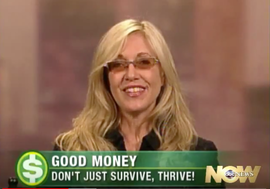 Natalie Wynne Pace is an Advocate for Sustainability, Financial Literacy & Women's Empowerment. Natalie is the bestselling author of The Power of 8 Billion: It's Up to Us and is the co-creator of the Earth Gratitude Project. She has been ranked as a No. 1 stock picker, above over 835 A-list pundits, by an independent tracking agency (TipsTraders). Her book The ABCs of Money remained at or near the #1 Investing Basics e-book on Amazon for over 3 years (in its vertical), with over 120,000 downloads and a mean 5-star ranking. The 5th edition of The ABCs of Money was released on September 17, 2021. Natalie Pace's easy as a pie chart nest egg strategies earned gains in the last two recessions and have outperformed the bull markets in between. That is why her Investor Educational Retreats, books and private coaching are enthusiastically recommended by Nobel Prize winning economist Gary S. Becker, TD AMERITRADE chairman Joe Moglia, Kay Koplovitz and many Main Street investors who have transformed their lives using her Thrive Budget and investing strategies. Click to view a video testimonial from Nilo Bolden. Check out Natalie Pace's Apple Podcast. Watch videoconferences and webinars on Youtube. Other Blogs of Interest 2023 Crystal Ball for Stocks, Bonds, Real Estate, Cannabis, Gold, Silver. Tilray: The Constellation Brands of Cannabis New Year, New Healthier You Tesla's $644 Billion Fall From Mars Silver's Quiet Rally. Free Holiday Gift. Stocking Stuffers Under $10. Cash Burn & Inflation Toasted the Plant-Based Protein Companies Save Thousands Annually With Smarter Energy Choices Is Your FDIC-Insured Cash Really Safe? Giving Tuesday Tips to Make Your Charitable Contribution a Triple Win. Is Your Pension Plan Stealing From You? The FTX Crypto Fall of a Billionaire (SBF). Crypto, Gold, Silver: Not So Safe Havens. Will Ted Lasso Save Christmas? 3Q will be Released This Thursday. Apple and the R Word. Yield is Back. But It's Tricky. The Real Reason Why OPEC Cut Oil Production. The Inflation Buster Budgeting and Investing Plan. No. Elon Musk Doesn't Live in a Boxabl. IRAs Offer More Freedom and Protection Than 401ks. Will There Be a Santa Rally 2022? What's Safe in a Debt World? Not Bonds. Will Your Favorite Chinese Company be Delisted? 75% of New Homeowners Have Buyer's Remorse Clean Energy Gets a Green Light from Congress. Fix Money Issues. Improve Your Relationships. 24% of House Sales Cancelled in the 2nd Quarter. 3 Things to Do Before July 28th. Recession Risks Rise + a Fairly Safe High-Yield Bond DAQO Doubles. Solar Shines. Which Company is Next in Line? Tesla Sales Disappoint. Asian EV Competition Heats Up. 10 Wealth Strategies of the Rich Copper Prices Plunge Colombia and Indonesia: Should You Invest? 10 Misleading Broker/Salesman Pitches. Why are Banks and Dividend Stocks Losing Money? ESG Investing: Missing the E. Bitcoin Crashes. Crypto, Gold and Stocks All Crash. The U.S. House Decriminalizes Cannabis Again. The Risk of Recession in 6 Charts. High Gas Prices How Will Russian Boycotts Effect U.S. Multinational Companies? Oil and Gas Trends During Wartime Russia Invades Ukraine. How Have Stocks Responded in Past Wars? 2022 Crystal Ball in Stocks, Real Estate, Crypto, Cannabis, Gold, Silver & More. Interview with the Chief Investment Strategist of Charles Schwab & Co., Inc. Stocks Enter a Correction Investor IQ Test Investor IQ Test Answers What's Safe in a Debt World? Money Market Funds, FDIC, SIPC: Are Any of Them Safe? My 24-Year-Old is Itching to Buy a Condo. Should I Help Him? The 12-Step Guide to Successful Investing. Gardeners Creating Sanctuary & Solutions in Food Deserts. The Bank Bail-in Plan on Your Dime. Rebalancing Your Nest Egg IQ Test. Answers to the Rebalancing Your Nest Egg IQ Test. Important Disclaimers Please note: Natalie Pace does not act or operate like a broker. She reports on financial news, and is one of the most trusted sources of financial literacy, education and forensic analysis in the world. Natalie Pace educates and informs individual investors to give investors a competitive edge in their personal decision-making. Any publicly traded companies or funds mentioned by Natalie Pace are not intended to be buy or sell recommendations. ALWAYS do your research and consult an experienced, reputable financial professional before buying or selling any security, and consider your long-term goals and strategies. Investors should NOT be all in on any asset class or individual stocks. Your retirement plan should reflect a diversified strategy, which has been designed with the assistance of a financial professional who is familiar with your goals, risk tolerance, tax needs and more. The "trading" portion of your portfolio should be a very small part of your investment strategy, and the amount of money you invest into individual companies should never be greater than your experience, wisdom, knowledge and patience. Information has been obtained from sources believed to be reliable. However, NataliePace.com does not warrant its completeness or accuracy. Opinions constitute our judgment as of the date of this publication and are subject to change without notice. This material is not intended as an offer or solicitation for the purchase or sale of any financial instrument. Securities, financial instruments or strategies mentioned herein may not be suitable for all investors. Crystal Ball 2023 Do you have too much exposure to stocks? Crypto? Gold/silver? Bonds? What is likely to happen in 2023, and what's your best plan? In 2022: · The S&P500 dropped -19.44% · The NASDAQ Composite Index sank -33% · Tesla is down -72% over the high set in Nov. 2021 · Bitcoin’s Crypto Winter is frozen with -76% losses from its Nov. 2021 high of $69,000 · Long-term bonds are losing value, negative-yielding and becoming less liquid as interest rates rise. The yield curve is negative again, which is 100% correlated with recessions. Is there any bright spot or area of safety? What's the best strategy for 2023? Will it be as bad as 2022, or will the recovery begin? See below for our analysis of stocks, bonds, crypto, gold, silver, copper and real estate, and your best strategy for each. Stocks 2022 was not a very good year for stocks. 2023 is not predicted to be any better. Even with the pullback of 2022, many stocks are still overvalued. With high valuations and weak expectations, I would take a defensive strategy with stocks this year. As you can see in the sample pie chart below, we are overweighting an additional 20% safe. 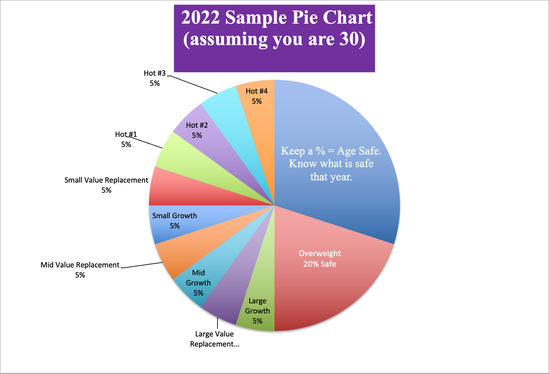 Sample Nest Egg Pie Chart using the Natalie Pace time-proven 21st Century system. Visit NataliePace.com to learn more. Email [email protected]. 2023 could start off better than it ends. According to the FOMC minutes from Dec. 15, 2022, the 4th quarter 2022 GDP was increasing at a “modest pace,” after posting “strong” 3.2% growth in the 3rd quarter. Some analysts believe that the growth could be even higher than the 3rd quarter. At any rate, the advance results will be released by the Bureau of Economic Analysis on Jan. 26, 2023 at 8:30 am ET. Any positive results might be greeted with a rally, and a strong showing could light stocks on fire, at least temporarily. There are a few flies in the ointment, including the Debt Ceiling, which will have to be addressed with a divided House of Representatives and White House, likely in February or March. That hasn’t gone smoothly in the past. In 2011, when the raise was put off to the last second before a default on U.S. debt (the first ever), S&P Global downgraded the U.S. credit from AAA to AA+. Stocks dropped. Gold and silver soared to an all-time high. Bonds The mantra for bonds is to keep the terms short and the creditworthiness high. The Fed Fund rate is predicted to rise at least another 70 basis points in 2023, without any pullbacks. That is good for fixed income investors who have been on the sidelines and very bad for those who have been sold into long-term bonds of questionable quality. As interest rates rise, bond values go down. As you can see from the chart below, bonds declined in value almost as much as stocks last year. We’re still in a sweet spot where there is more liquidity in the bond market. So, getting rid of a long-term low-yield, high-risk bond might still be possible. It’s a good idea to understand whether or not you can sell it at par, or if you’ll have to take a haircut in the offloading before you decide the course of action that’s right for you. You might start by evaluating your current bond to see if they meet the terms of the bond mantra. (Most bond funds do not.) What kind of short-term creditworthy bonds are available? The Treasury I savings bond is still offering a 6.89% interest rate (through April 30, 2023). The interest rate resets on May 1, 2023. If inflation is still high, the new rate will still be in the high-yield range, with fairly low risk. Of course, you are limited to $10,000 per person per year on the series I savings bond. So, this is not something that’s going to be the strategy for most of your safe side. (Although don’t underestimate the value of slow, steady, compounding. Peter Thiel reportedly has over $4 billion in a Roth IRA.) Short-term Treasury bills and FRNs are offering a higher interest rate than long-term. The 1-year Treasury Bill is at 4.71, while the 30-year is offering about 3.81. Due to leverage, risk and rising interest rates, again, the mantra is: keep the terms short and the creditworthiness high. Having a laddering approach is a great idea too – something I explain in further detail below. Opportunities for other types of income-producing hard assets might start presenting themselves in the next 1 to 2 years. So having access to liquidity remains important. Crypto Crypto Winters are harsh and long. After the boom in Dec. 2017, when Bitcoin jumped to $20,000, Bitcoin plunged and spent most of the next three years stuck in the $3,000 to $8000 price range. Because of the number of bankruptcies that we have seen with crypto coins, exchanges and companies, there is still likely to be further fallout and contagion – as the ripple effect takes more companies down. Additionally, those crypto exchanges and brokerages that promise FDIC insurance on the cash portion of your account are much higher risk than most people realize. FDIC insurance does not come in to play if a non-bank (like a brokerage or exchange) declares bankruptcy. Learn more in my blog on FDIC-Insured Brokerage Accounts. . Gold and Silver Gold and silver have been suffering from the popularity of cryptocurrency as the preferred safe haven for the younger generation. Millennials and Gen Z who are worried that their dollars will become worthless generally prefer digital exchange over bullion. However, now that the Stimmy checks savings have been burned up, and many cryptocoins are trading at 1/3 or less of the value they held in November 2021, crypto is unlikely to put up much of a fight in 2023. Therefore, investors who are seeking a safe haven will likely turn to gold and silver. We’ve already seen a quiet rally in silver, which is up about 32% off of its low in 2022. Because silver is still trading at half of its high, whereas gold is only down about 12% from its $2089 high, silver has a great deal more upside potential than gold. Learn more in my Silver’s Quiet Rally blog. Copper Copper has been called the “new oil” by Goldman Sachs. It is in high demand due to the commitment of the world to implement cleaner energy strategies. Everything from electric cars and solar panels to smart grids require a lot of copper. Copper is hot, even though prices have slipped a bit from their very elevated prices in 2021. Solid copper prices will benefit countries like Australia, Peru and Chile, which are rich in natural resources. Chile is the #1 supplier of copper to the world, while Peru is the 2nd. These countries are also paying a good dividend, and are worth looking at adding to your portfolio. Although we hear a lot about developing world countries being in trouble with rising interest rates, Chile and Peru are not included in the swath. In the above chart, you’ll see that copper prices plunged in the early days of the pandemic. Even hot industries can get dragged down in a bear market. For that reason, this year’s mantra for equities is the stock layaway plan, which is outlined below. Stock Layaway Plan This is an old-school term that’s becoming more popular today as people need to put their big ticket spending on a monthly payment plan. So how does a stock layaway plan work? First of all, as I detail directly below, we want to overweight 20% safe before we decide how much we want to invest. Once we determine how much should be in each of our 10 slices, think about getting to that goal over the next year. In other words, if our slice should have another $24,000 to be full, just put in $2000 each month. Using the Stock Layaway plan, we will be buying more at a lower price, if stocks go down. If the share prices go up, then they will be filling up our slices for us. Of course, if we get to our goal before the end of the year because stocks have increased in value, then just stop buying. Overweight up to 20% Safe If you are not sure of what you owe now is the time to absolutely know what you have at risk, what you have safe, and what isn’t as safe as you might realize. (Be sure to watch my 2023 Crystal Ball videoconference for details on this.) We should always keep a percent equal to our age safe, i.e. not in stocks, mutual funds, equities, etc. Because of the risk of a recession, which many economists are predicting for the U.S. and many countries in Europe in 2023, we are overweighting an additional 20% safe in our sample pie charts. (When the U.S. sneezes, Canada catches a cold.) You can personalize your own pie chart using our free Web app. Simply email [email protected] with the subject line Free Web Apps to receive the link. As I mentioned above, even bonds can be tricky, negative-yielding and losing value in today’s world of rising interest rates. Diversify and Rebalance Rebalancing is a very important part of a successful investing strategy. When stocks go down, you want to buy more at a lower price. When stocks go up, you want to capture your gains, so that they don’t evanesce in the next recession. You might think this sounds like a lot of work. However, it’s actually easy as a pie chart. You should rebalance once, twice or three times a year. If you’re not doing this, you are riding a Wall Street rollercoaster, and are at risk of losing up to half of your wealth. It then takes quite a while to crawl back to even – 8 to 15 years. That’s a wealth roller coaster with severe consequences for your FICO score and future, which can be prevented by properly protecting and diversifying your retirement plan and assets now. Email [email protected] if you’d like to know exactly what you own, and how to get better protected and diversified. Bond Laddering Strategy A bond laddering strategy is similar to the stock layaway plan. Rather than putting all of your “safe” money in a bond or CD, have a plan that cuts up what you want to invest in quarterly chunks. If you want to invest $100,000 in short-term Treasury bills, think about doing $25,000 every 3 months. That way as interest rates rise, you are benefiting from the higher yield. You are also keeping liquidity, so that if opportunities to deploy your capital into other safe, income-producing assets present themselves, you have the cash on hand to take advantage of the opportunity. Adhere to the mantra: keep the terms short and the creditworthiness high. Banks with the lowest credit scores are offering the highest interest rates – which are still about 1.5% below what Treasury Bills are offering. Real Estate If we are a cash buyer and are willing to shop in the shadow inventory, there may be more opportunities for real estate in 2023 than we might realize. Prices have already fallen an average 11% since June of 2022. The areas that went up the highest are the ones that are falling the fastest. As Mortgage Bankers Association President and CEO Bob Broeksmit commented on Jan. 5, 2023, “We project lower rates and rising inventory levels as two positives for households wanting to buy a home in 2023.” There just aren’t that many qualified buyers who can afford to pay 6.4% mortgage interest rates, while real estate prices are so high. So, most people who really need to sell are going to have to discount their asking price. Now is a good time to do our research and to pull together our liquidity. Banks are not the only way to finance a purchase. The banks are going to charge us a lot more in interest than our parents might. (Prince William didn’t purchase Kensington Palace.) It might be a good idea for elderly investors to purchase a hard asset, like a home, that helps to keep the money in the family (and stops making the landlord rich), rather than having too much at risk in stocks or in long-term bonds. I will be hosting a Real Estate Master class on January 28, 2023 to outline the 8+ strategies to consider when purchasing a long-term, illiquid asset like a home or income-producing property. Whether we are ready to purchase our first home, ready to downsize, looking to move abroad, considering buying a 2nd home as an Airbnb rental or interested in purchasing your first apartment building, it is very important to adopt essential time-proven strategies to put us on the right side of the trade and to position us for a safe, cash-positive, stress-free experience. Register now for the lowest price. Anybody can attend. Email [email protected] with Real Estate Master Class in the subject line for additional information. Bottom Line There are finally opportunities to earn a little yield on the safe side. However, it is tricky. So it is important to check out my videoconference on the topic. Also, money market funds, long-term bonds, and even FDIC-insured cash at brokerages and exchanges can be tricky. I have a blog and videoconference on that topic as well. On the at risk side, while anything is possible, most economists are predicting a recession. Recessions drag the stock market down. Our best protection against a bear market is always just overweighting safe (and knowing what is truly safe in a Debt World). Market timing doesn’t work. Be sure to watch my Crystal Ball 2023 videoconference to get even more details than are presented in this blog. New Year, New You Financial Freedom Retreat If you're interested in learning 21st Century time-proven investing strategies for building and protecting your wealth, investing in renewable energy, saving thousands in your budget with smarter energy choices, and managing challenging economic times (from a No. 1 stock picker,) join us for our Jan. 20-22, 2023 Financial Freedom Retreat. Email [email protected] to learn more and to register. Click on the banner ad below to discover the 18+ strategies you'll learn and master, to get pricing information and to read testimonials Get the best price when you register with family and friends. Register now to access your free 4-part Protect Your Wealth Now webinar that will get you started immediately.  Join us for our New Year, New You Financial Freedom Retreat. Jan. 20-22, 2023. Email [email protected] to learn more. Register now to receive a free 4-part webinar (which you can access to protect your wealth now). Click for testimonials & details. 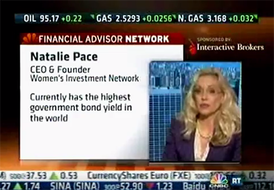 Natalie Wynne Pace is an Advocate for Sustainability, Financial Literacy & Women's Empowerment. Natalie is the bestselling author of The Power of 8 Billion: It's Up to Us and is the co-creator of the Earth Gratitude Project. She has been ranked as a No. 1 stock picker, above over 835 A-list pundits, by an independent tracking agency (TipsTraders). Her book The ABCs of Money remained at or near the #1 Investing Basics e-book on Amazon for over 3 years (in its vertical), with over 120,000 downloads and a mean 5-star ranking. The 5th edition of The ABCs of Money was released on September 17, 2021. Natalie Pace's easy as a pie chart nest egg strategies earned gains in the last two recessions and have outperformed the bull markets in between. That is why her Investor Educational Retreats, books and private coaching are enthusiastically recommended by Nobel Prize winning economist Gary S. Becker, TD AMERITRADE chairman Joe Moglia, Kay Koplovitz and many Main Street investors who have transformed their lives using her Thrive Budget and investing strategies. Click to view a video testimonial from Nilo Bolden. Check out Natalie Pace's Apple Podcast. Watch videoconferences and webinars on Youtube. Other Blogs of Interest Tilray: The Constellation Brands of Cannabis New Year, New Healthier You Tesla's $644 Billion Fall From Mars Silver's Quiet Rally. Free Holiday Gift. Stocking Stuffers Under $10. Cash Burn & Inflation Toasted the Plant-Based Protein Companies Save Thousands Annually With Smarter Energy Choices Is Your FDIC-Insured Cash Really Safe? Giving Tuesday Tips to Make Your Charitable Contribution a Triple Win. Is Your Pension Plan Stealing From You? The FTX Crypto Fall of a Billionaire (SBF). Crypto, Gold, Silver: Not So Safe Havens. Will Ted Lasso Save Christmas? 3Q will be Released This Thursday. Apple and the R Word. Yield is Back. But It's Tricky. The Real Reason Why OPEC Cut Oil Production. The Inflation Buster Budgeting and Investing Plan. No. Elon Musk Doesn't Live in a Boxabl. IRAs Offer More Freedom and Protection Than 401ks. Will There Be a Santa Rally 2022? What's Safe in a Debt World? Not Bonds. Will Your Favorite Chinese Company be Delisted? 75% of New Homeowners Have Buyer's Remorse Clean Energy Gets a Green Light from Congress. Fix Money Issues. Improve Your Relationships. 24% of House Sales Cancelled in the 2nd Quarter. 3 Things to Do Before July 28th. Recession Risks Rise + a Fairly Safe High-Yield Bond DAQO Doubles. Solar Shines. Which Company is Next in Line? Tesla Sales Disappoint. Asian EV Competition Heats Up. 10 Wealth Strategies of the Rich Copper Prices Plunge Colombia and Indonesia: Should You Invest? 10 Misleading Broker/Salesman Pitches. Why are Banks and Dividend Stocks Losing Money? ESG Investing: Missing the E. Bitcoin Crashes. Crypto, Gold and Stocks All Crash. The U.S. House Decriminalizes Cannabis Again. The Risk of Recession in 6 Charts. High Gas Prices How Will Russian Boycotts Effect U.S. Multinational Companies? Oil and Gas Trends During Wartime Russia Invades Ukraine. How Have Stocks Responded in Past Wars? 2022 Crystal Ball in Stocks, Real Estate, Crypto, Cannabis, Gold, Silver & More. Interview with the Chief Investment Strategist of Charles Schwab & Co., Inc. Stocks Enter a Correction Investor IQ Test Investor IQ Test Answers What's Safe in a Debt World? Money Market Funds, FDIC, SIPC: Are Any of Them Safe? My 24-Year-Old is Itching to Buy a Condo. Should I Help Him? The 12-Step Guide to Successful Investing. Gardeners Creating Sanctuary & Solutions in Food Deserts. The Bank Bail-in Plan on Your Dime. Rebalancing Your Nest Egg IQ Test. Answers to the Rebalancing Your Nest Egg IQ Test. Important Disclaimers Please note: Natalie Pace does not act or operate like a broker. She reports on financial news, and is one of the most trusted sources of financial literacy, education and forensic analysis in the world. Natalie Pace educates and informs individual investors to give investors a competitive edge in their personal decision-making. Any publicly traded companies or funds mentioned by Natalie Pace are not intended to be buy or sell recommendations. ALWAYS do your research and consult an experienced, reputable financial professional before buying or selling any security, and consider your long-term goals and strategies. Investors should NOT be all in on any asset class or individual stocks. Your retirement plan should reflect a diversified strategy, which has been designed with the assistance of a financial professional who is familiar with your goals, risk tolerance, tax needs and more. The "trading" portion of your portfolio should be a very small part of your investment strategy, and the amount of money you invest into individual companies should never be greater than your experience, wisdom, knowledge and patience. Information has been obtained from sources believed to be reliable. However, NataliePace.com does not warrant its completeness or accuracy. Opinions constitute our judgment as of the date of this publication and are subject to change without notice. This material is not intended as an offer or solicitation for the purchase or sale of any financial instrument. Securities, financial instruments or strategies mentioned herein may not be suitable for all investors. Tilray: The Constellation Brands of Cannabis Tilray announces their earnings on Monday, Jan. 9, 2023 at 8:30 am ET Everyone has been talking about the Crypto Winter, but few are discussing the complete annihilation of cannabis. There are still a few technical traders hoping for rebounds due to the massive selloff. Otherwise, Reddit and the Twittersphere are radio silent on investing in cannabis. So, with share prices down 90% in a lot of these brands, is now a good time to buy low? What’s Going On? Cannabis has notoriously been a boom and bust investment. Whenever news of a country decriminalizing makes headlines, pretty much all of the cannabis companies will shoot the moon, rising to heights that are sometimes hundreds of times higher than their sales. One of the biggest problems today is that the United States has dropped the ball on legalization. A few members of the Senate, including Senators Chuck Schumer and Cory Booker, keep promising that legislation is a high priority and that they are building bipartisan support, and then nothing happens. With the Republicans in control of the house, there’s even less hope for full legalization over the next two years, though incremental progress seems to be inching forward. Germany was supposed to be the next country to make recreational marijuana fully legal. (Medicinal cannabis is already legal in many EU countries.) However, the country has run into EU regulations that have slowed the process down. It’s worth it to keep an ear to the ground on progress, as any legalization in Germany could mean more EU countries will follow. In the meantime, Tilray reported that their medical cannabis sales increased 16% in Europe (removing the negative impact of the euro weakening against the dollar). Tilray sales were up 22% in Germany. While national legislation has slowed down in the U.S., states continue to open up. There is also a great deal going on within the companies themselves. One of the most exciting developments is that one company in particular has been on an M&A buying spree and could post up to 40-64% increase in year-over-year adjusted EBITDA growth as soon as next week. This is important because all small companies need to worry about their pathway to profitability. Capital is getting more difficult to raise, and the interest costs are elevated. M&A Canopy Growth has a CEO who came from Constellation Brands. However, it is Tilray that is becoming the diversified spirits brand of the cannabis space. Tilray acquired Sweetwater Brewing (and their popular 420 craft beer) in December of 2020. On Nov. 10, 2022, they added Montauk Brewing to their spirits brands, which also include Breckenridge Distillery, Green Flash Brewing and Alpine Beer. Most of the new acquisitions by Tilray have been in the craft-beverage space. M&A will increase revenue. Of course, it’s also important to purchase companies with their own expansion potential and fiscal husbandry. According to Carl Merton (CFO), Tilray’s craft and wellness brands are “strong, high-margin businesses.” During the earnings call conference on Oct. 12, 2022, Tilray CEO Irwin Simon reported that “SweetWater is available in 42 states across the U.S., including most recently in California, which is the number one beer market in the U.S.” The West Coast expansion for SweetWater is still in the early stages. Tilray’s next earnings report will be Jan. 9, 2022, before the market opens. The last quarter saw a 9% decline in revenue year over year. There were strikes, cyberattacks and price compression to deal with, which Tilray anticipates making up in the quarterly results that will be reported on Monday. The company doesn’t provide revenue guidance other than that. However, with the acquisitions and resolution of the last quarter’s challenges, there could be solid growth, at least in the craft beverage vertical. The Macro Economy Tilray has the potential to be a bright star in the industry. However, the prospects for share price growth in the industry at large remain highly correlated with the legalization (or perceived) of countries. So, a great quarter for Tilray could be tempered by the tepid expectations for the industry. We’re unlikely to see more Shoot the Moon phenomena until Germany or the U.S. decriminalizes, though a bounce off of the current depressed prices could still be notable. It’s worth it to keep an eye on Germany, since Tilray already has a 20% market share there in “flower, extracts, and dronabinol products.” Additionally, 2022 was a rough year for stocks, with the S&P500® declining -19.44%. 2023 is predicted to be another year of volatility and potential weakness. So, any time we experience a company share price that soars, it’s a good idea to take our profits early and often. A rising tide can lift all ships, and a sinking tide can certainly ground them. Even great companies with outstanding sales growth and potential can be pulled down in the market washout. Other Cannabis Companies Each one of the cannabis companies has a certain area of expertise and focus. All of them are cutting operating costs, shoring up growth potential and cutting out segments with cash burn or low margins. Each has a strategic alliance and board seats affiliated with other companies. Cronos is 41% owned by Altria, which is basically Phillip Morris, a tobacco company. Canopy Growth has a lot of ties to Constellation Brands. Sadly, they have a hangover from the founder CEO, who went on a spending spree with little regard for that important pathway to profitability. Consequently, the company lost $300 million in fiscal year 2022 with almost $4 billion lost in the four prior years. The Green Organic Dutchman vows to produce organic weed. The company‘s revenue grew 36% year over year in the most recent quarter. This company looks like the smallest, but the board of directors boasts some serious talent, with individuals from Novartis and Canopy Growth. HEXO is the 2nd most popular brand in Canada (behind Tilray), with some CBD beverage offerings that look quite delicious. Tilray has a strategic relationship with HEXO and with Medmen. Bottom Line Cannabis is a volatile industry. Stocks are expected to experience economic storms and a potential recession in 2023 (which could see most share prices go lower). However, even with that there can be sunny days. January 9th might well be one of those. However, we’ve seen that any lunar takeoffs of these brands tend to crash back to Earth pretty rapidly. You cannot set a limit order high enough for the potential rise. (Brokerages won’t allow it.) It’s a much better idea to think “capture gains” rather than stop losses or selling low, particularly with so many developed world denizens wanting full legalization of weed. So, it’s a good idea to monitor what’s going on next Monday, and to have a stock app that includes TLRY and other cannabis brands that you’re interested in. I’ll be monitoring as well. So, please check the home page at NataliePace.com for any updates that I post on my Twitter feed. Full disclosure: I have positions in some of the companies mentioned in this blog. New Year, New You Financial Freedom Retreat If you're interested in learning 21st Century time-proven investing strategies for building and protecting your wealth, investing in renewable energy, saving thousands in your budget with smarter energy choices, and managing challenging economic times (from a No. 1 stock picker,) join us for our Jan. 20-22, 2023 Financial Freedom Retreat. Email [email protected] to learn more and to register. Click on the banner ad below to discover the 18+ strategies you'll learn and master, to get pricing information and to read testimonials Get the best price when you register with family and friends. Register now to access your free 4-part Protect Your Wealth Now webinar that will get you started immediately.  Join us for our New Year, New You Financial Freedom Retreat. Jan. 20-22, 2023. Email [email protected] to learn more. Register now to receive a free 4-part webinar (which you can access to protect your wealth now). Click for testimonials & details.  Photo of Natalie Pace by Marie Commiskey. Photo of Natalie Pace by Marie Commiskey. Natalie Wynne Pace is an Advocate for Sustainability, Financial Literacy & Women's Empowerment. Natalie is the bestselling author of The Power of 8 Billion: It's Up to Us and is the co-creator of the Earth Gratitude Project. She has been ranked as a No. 1 stock picker, above over 835 A-list pundits, by an independent tracking agency (TipsTraders). Her book The ABCs of Money remained at or near the #1 Investing Basics e-book on Amazon for over 3 years (in its vertical), with over 120,000 downloads and a mean 5-star ranking. The 5th edition of The ABCs of Money was released on September 17, 2021. Natalie Pace's easy as a pie chart nest egg strategies earned gains in the last two recessions and have outperformed the bull markets in between. That is why her Investor Educational Retreats, books and private coaching are enthusiastically recommended by Nobel Prize winning economist Gary S. Becker, TD AMERITRADE chairman Joe Moglia, Kay Koplovitz and many Main Street investors who have transformed their lives using her Thrive Budget and investing strategies. Click to view a video testimonial from Nilo Bolden. Check out Natalie Pace's Apple Podcast. Watch videoconferences and webinars on Youtube. Other Blogs of Interest New Year, New Healthier You Tesla's $644 Billion Fall From Mars Silver's Quiet Rally. Free Holiday Gift. Stocking Stuffers Under $10. Cash Burn & Inflation Toasted the Plant-Based Protein Companies Save Thousands Annually With Smarter Energy Choices Is Your FDIC-Insured Cash Really Safe? Giving Tuesday Tips to Make Your Charitable Contribution a Triple Win. Is Your Pension Plan Stealing From You? The FTX Crypto Fall of a Billionaire (SBF). Crypto, Gold, Silver: Not So Safe Havens. Will Ted Lasso Save Christmas? 3Q will be Released This Thursday. Apple and the R Word. Yield is Back. But It's Tricky. The Real Reason Why OPEC Cut Oil Production. The Inflation Buster Budgeting and Investing Plan. No. Elon Musk Doesn't Live in a Boxabl. IRAs Offer More Freedom and Protection Than 401ks. Will There Be a Santa Rally 2022? What's Safe in a Debt World? Not Bonds. Will Your Favorite Chinese Company be Delisted? 75% of New Homeowners Have Buyer's Remorse Clean Energy Gets a Green Light from Congress. Fix Money Issues. Improve Your Relationships. 24% of House Sales Cancelled in the 2nd Quarter. 3 Things to Do Before July 28th. Recession Risks Rise + a Fairly Safe High-Yield Bond DAQO Doubles. Solar Shines. Which Company is Next in Line? Tesla Sales Disappoint. Asian EV Competition Heats Up. 10 Wealth Strategies of the Rich Copper Prices Plunge Colombia and Indonesia: Should You Invest? 10 Misleading Broker/Salesman Pitches. Why are Banks and Dividend Stocks Losing Money? ESG Investing: Missing the E. Bitcoin Crashes. Crypto, Gold and Stocks All Crash. The U.S. House Decriminalizes Cannabis Again. The Risk of Recession in 6 Charts. High Gas Prices How Will Russian Boycotts Effect U.S. Multinational Companies? Oil and Gas Trends During Wartime Russia Invades Ukraine. How Have Stocks Responded in Past Wars? 2022 Crystal Ball in Stocks, Real Estate, Crypto, Cannabis, Gold, Silver & More. Interview with the Chief Investment Strategist of Charles Schwab & Co., Inc. Stocks Enter a Correction Investor IQ Test Investor IQ Test Answers What's Safe in a Debt World? Money Market Funds, FDIC, SIPC: Are Any of Them Safe? My 24-Year-Old is Itching to Buy a Condo. Should I Help Him? The 12-Step Guide to Successful Investing. Gardeners Creating Sanctuary & Solutions in Food Deserts. The Bank Bail-in Plan on Your Dime. Rebalancing Your Nest Egg IQ Test. Answers to the Rebalancing Your Nest Egg IQ Test. Important Disclaimers Please note: Natalie Pace does not act or operate like a broker. She reports on financial news, and is one of the most trusted sources of financial literacy, education and forensic analysis in the world. Natalie Pace educates and informs individual investors to give investors a competitive edge in their personal decision-making. Any publicly traded companies or funds mentioned by Natalie Pace are not intended to be buy or sell recommendations. ALWAYS do your research and consult an experienced, reputable financial professional before buying or selling any security, and consider your long-term goals and strategies. Investors should NOT be all in on any asset class or individual stocks. Your retirement plan should reflect a diversified strategy, which has been designed with the assistance of a financial professional who is familiar with your goals, risk tolerance, tax needs and more. The "trading" portion of your portfolio should be a very small part of your investment strategy, and the amount of money you invest into individual companies should never be greater than your experience, wisdom, knowledge and patience. Information has been obtained from sources believed to be reliable. However, NataliePace.com does not warrant its completeness or accuracy. Opinions constitute our judgment as of the date of this publication and are subject to change without notice. This material is not intended as an offer or solicitation for the purchase or sale of any financial instrument. Securities, financial instruments or strategies mentioned herein may not be suitable for all investors. New Year. New Healthier You. If you’re interested in saving thousands annually in your budget, while promoting greater physical and fiscal health, simply email [email protected] with 21 Days Free Coaching in the subject line. This New Year, New Healthier You program is my gift to you, complimentary (free, with a value of over $600). The daily prosperity mantras can also result in higher income (passive and earned), while protecting the wealth that you currently have. It’s easy to do. Just listen or watch for 10 minutes or less every morning first thing, and then keep the mantra at the top of your mind all day long. At the end of 21 days, you’ll have a lot of new healthy habits that promote abundance. 2022 Year in Review What a year! I had the great honor of touring a seed farm in Oregon, a community garden in Compton, California, and learning about the Century Experiment at UC Davis. I interviewed England’s top sustainability expert Tony Juniper at the October Gallery in London (the place itself has a history of ecology), toured the anaerobic digestion plant in Poundbury and attended the first Evensong at Westminster Abbey after H.M. Queen Elizabeth II passed away. (She died 9.8.2022; I attended evensong 9.9.2022.) I posted a montage of 2022 on Instagram, Twitter and Facebook. I didn’t add music to the video for two reasons. It’s important to slow down and be present. Also, there are a few interviews and resources discussed, and I want you to hear them. In Poundbury, England, eco-coordinator and teacher Edd Moore gave me a tour of one of the most sustainable elementary schools in the world. His former student, Isla Lester, who is an award-winning blogger and activist, in addition to just being 10-years-old, sits beside four apples that she picked from the school’s apple tree, while discussing why she does what she does. From forest bathing in England and Oregon, to the beaches in Santa Monica, California, and Newquay, Cornwall, walking, biking, mass transportation and e-scooters were the main transportation. I was successful in limiting my car usage to less than 45 days total. Transportation is the largest emitter of CO2, followed by electricity, industry, homes and buildings and then agriculture. In 2022, I pledge to reduce my CO2 footprint again by at least 30%. How can each of us reduce our personal CO2 footprint? We can drive less. Insulate better. Avoid plastics and petrochemical clothing. Shop local and organic. These are just some of the ways to achieve a substantial reduction in CO2 emissions in the developed world, where the per person emissions are staggering. The upside is that we can save thousands annually in our budget with smarter choices. Learn more in The Power of 8 Billion: It's Up to Us. New Year’s resolutions can actually be fun, if we embrace that vision of what we want to achieve with a child’s sense of play. So I really encourage each one of us to embrace what we are looking to improve in our lives, and sing and dance our way into the transition. Below are a few more resources to assist. If you’re interested in improving your prosperity and abundance, in having more money in your budget, in protecting the wealth you have in your retirement accounts, while decreasing your FUD (fear, uncertainty, and doubt), then email [email protected] with 21 Days of Free Coaching in the subject line. This is my complimentary gift to you. Simply listen or watch every morning for the first 10 minutes of each day to get your assignment. 21 days of doing things differently will change your relationship with money. If you’re interested in healing our planet, The Power of 8 Billion: It's Up to Us is available as an audiobook, an e-book and as a print edition. The e-book is priced at just three dollars. Using the principles outlined in the book, along with the many inspiring stories of people who have transformed their communities, will put each of us on the right track to healing our planet. There is so much misinformation in the mainstream. It is important to get access to the best practices that work best, from the people who have been at the forefront of sustainability for more than half a century (who are featured in the book). You can check out my year in review at youtube.com/nataliepace. It was an extraordinary year filled with boots on the ground research in economics and sustainability. If you’re interested in protecting your wealth, learning how to divest your portfolio from fossil fuels and other polluters (ESG indices are full of CO2 problem companies – rather than being the solution) and investing with a time-proven, 21st Century strategy, join us at our online Jan. 20-22, 2023 Financial Freedom Retreat. If you’d like to join us in-person, we’re hosting a retreat adventure in the sustainable town of Poundbury, England March 20-22, 2023. Get the best price when you register by Jan. 15, 2023. Click on the blue-highlighted words above to access the retreat flyers. Email [email protected] to learn more. Thank you for being a part of our tribe. A healthier, wealthier and stronger you make our entire community stronger. We are now hosting brain trust adventures to help each one of us integrate financial wisdom, environmental health, prosperity, abundance, community and fun as a way of life. Our Restormel, Cornwall Adventure is sold out. However, you can start by joining us in Poundbury, England in March. We look forward to having you join us. Here’s a toast for a very sustainable New You for the New Year! The upside is that green choices can save each of us thousands of dollars annually, in addition to healing our planet.  Join us for our New Year, New You Financial Freedom Retreat. Jan. 20-22, 2023. Email [email protected] to learn more. Register now to receive a free 4-part webinar (which you can access to protect your wealth now). Click for testimonials & details. 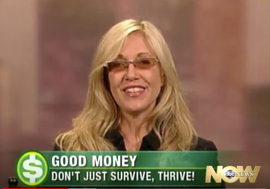 Natalie Wynne Pace is an Advocate for Sustainability, Financial Literacy & Women's Empowerment. Natalie is the bestselling author of The Power of 8 Billion: It's Up to Us and is the co-creator of the Earth Gratitude Project. She has been ranked as a No. 1 stock picker, above over 835 A-list pundits, by an independent tracking agency (TipsTraders). Her book The ABCs of Money remained at or near the #1 Investing Basics e-book on Amazon for over 3 years (in its vertical), with over 120,000 downloads and a mean 5-star ranking. The 5th edition of The ABCs of Money was released on September 17, 2021. Natalie Pace's easy as a pie chart nest egg strategies earned gains in the last two recessions and have outperformed the bull markets in between. That is why her Investor Educational Retreats, books and private coaching are enthusiastically recommended by Nobel Prize winning economist Gary S. Becker, TD AMERITRADE chairman Joe Moglia, Kay Koplovitz and many Main Street investors who have transformed their lives using her Thrive Budget and investing strategies. Click to view a video testimonial from Nilo Bolden. Check out Natalie Pace's Apple Podcast. Watch videoconferences and webinars on Youtube. Other Blogs of Interest Tesla's $644 Billion Fall From Mars Silver's Quiet Rally. Free Holiday Gift. Stocking Stuffers Under $10. Cash Burn & Inflation Toasted the Plant-Based Protein Companies Save Thousands Annually With Smarter Energy Choices Is Your FDIC-Insured Cash Really Safe? Giving Tuesday Tips to Make Your Charitable Contribution a Triple Win. Is Your Pension Plan Stealing From You? The FTX Crypto Fall of a Billionaire (SBF). Crypto, Gold, Silver: Not So Safe Havens. Will Ted Lasso Save Christmas? 3Q will be Released This Thursday. Apple and the R Word. Yield is Back. But It's Tricky. The Real Reason Why OPEC Cut Oil Production. The Inflation Buster Budgeting and Investing Plan. No. Elon Musk Doesn't Live in a Boxabl. IRAs Offer More Freedom and Protection Than 401ks. Will There Be a Santa Rally 2022? What's Safe in a Debt World? Not Bonds. Will Your Favorite Chinese Company be Delisted? 75% of New Homeowners Have Buyer's Remorse Clean Energy Gets a Green Light from Congress. Fix Money Issues. Improve Your Relationships. 24% of House Sales Cancelled in the 2nd Quarter. 3 Things to Do Before July 28th. Recession Risks Rise + a Fairly Safe High-Yield Bond DAQO Doubles. Solar Shines. Which Company is Next in Line? Tesla Sales Disappoint. Asian EV Competition Heats Up. 10 Wealth Strategies of the Rich Copper Prices Plunge Colombia and Indonesia: Should You Invest? 10 Misleading Broker/Salesman Pitches. Why are Banks and Dividend Stocks Losing Money? ESG Investing: Missing the E. Bitcoin Crashes. Crypto, Gold and Stocks All Crash. The U.S. House Decriminalizes Cannabis Again. The Risk of Recession in 6 Charts. High Gas Prices How Will Russian Boycotts Effect U.S. Multinational Companies? Oil and Gas Trends During Wartime Russia Invades Ukraine. How Have Stocks Responded in Past Wars? 2022 Crystal Ball in Stocks, Real Estate, Crypto, Cannabis, Gold, Silver & More. Interview with the Chief Investment Strategist of Charles Schwab & Co., Inc. Stocks Enter a Correction Investor IQ Test Investor IQ Test Answers What's Safe in a Debt World? Money Market Funds, FDIC, SIPC: Are Any of Them Safe? My 24-Year-Old is Itching to Buy a Condo. Should I Help Him? The 12-Step Guide to Successful Investing. Gardeners Creating Sanctuary & Solutions in Food Deserts. The Bank Bail-in Plan on Your Dime. Rebalancing Your Nest Egg IQ Test. Answers to the Rebalancing Your Nest Egg IQ Test. Important Disclaimers Please note: Natalie Pace does not act or operate like a broker. She reports on financial news, and is one of the most trusted sources of financial literacy, education and forensic analysis in the world. Natalie Pace educates and informs individual investors to give investors a competitive edge in their personal decision-making. Any publicly traded companies or funds mentioned by Natalie Pace are not intended to be buy or sell recommendations. ALWAYS do your research and consult an experienced, reputable financial professional before buying or selling any security, and consider your long-term goals and strategies. Investors should NOT be all in on any asset class or individual stocks. Your retirement plan should reflect a diversified strategy, which has been designed with the assistance of a financial professional who is familiar with your goals, risk tolerance, tax needs and more. The "trading" portion of your portfolio should be a very small part of your investment strategy, and the amount of money you invest into individual companies should never be greater than your experience, wisdom, knowledge and patience. Information has been obtained from sources believed to be reliable. However, NataliePace.com does not warrant its completeness or accuracy. Opinions constitute our judgment as of the date of this publication and are subject to change without notice. This material is not intended as an offer or solicitation for the purchase or sale of any financial instrument. Securities, financial instruments or strategies mentioned herein may not be suitable for all investors. |
AuthorNatalie Pace is the co-creator of the Earth Gratitude Project and the author of The Power of 8 Billion: It's Up to Us, The ABCs of Money, The ABCs of Money for College, The Gratitude Game and Put Your Money Where Your Heart Is. She is a repeat guest & speaker on national news shows and stages. She has been ranked the No. 1 stock picker, above over 830 A-list pundits, by an independent tracking agency, and has been saving homes and nest eggs since 1999. Archives
July 2024
Categories |







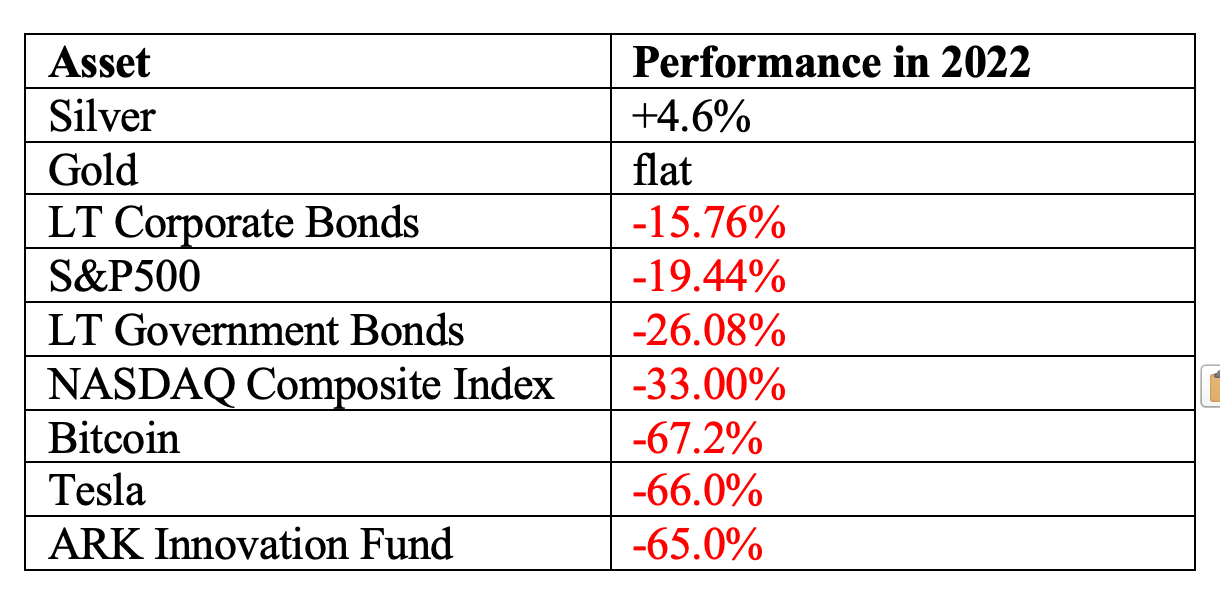
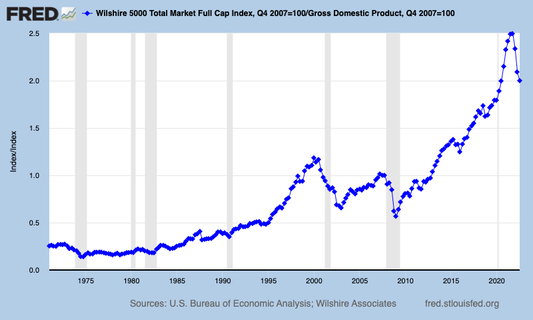
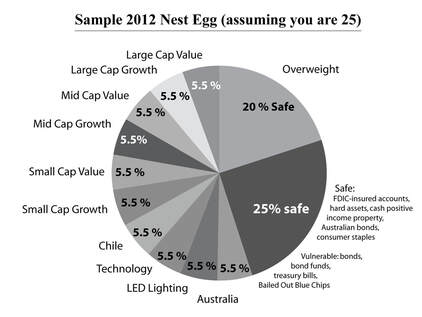
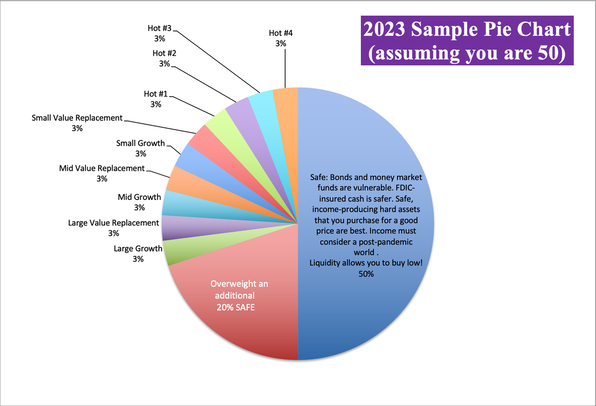
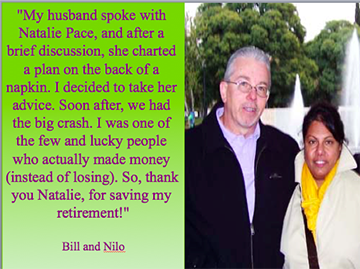
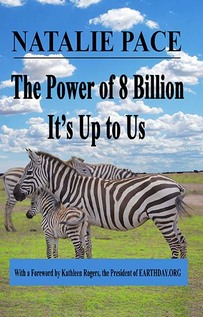
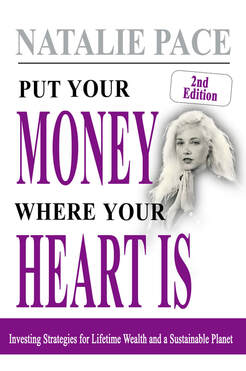


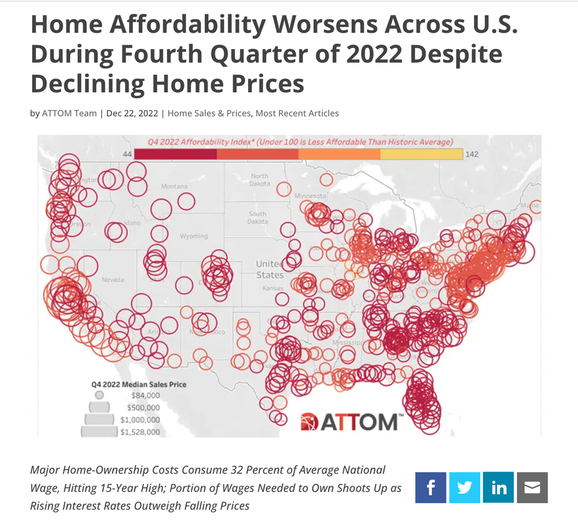

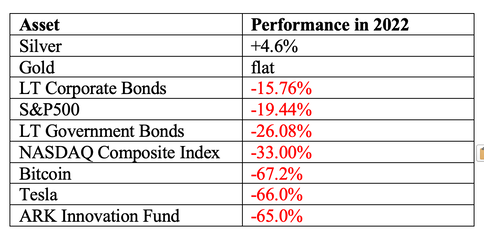
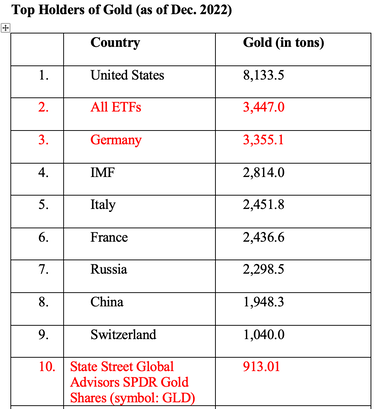
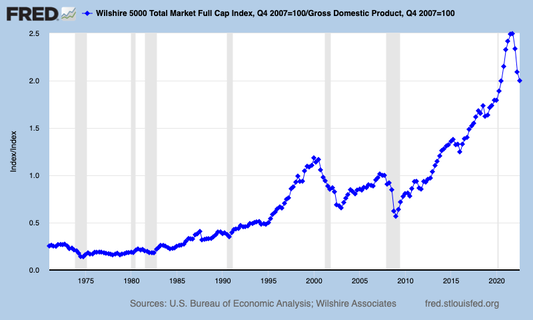
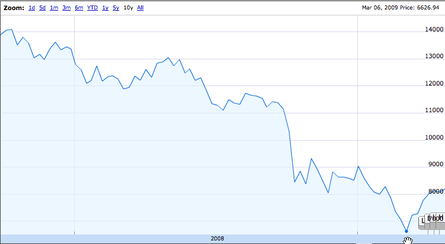
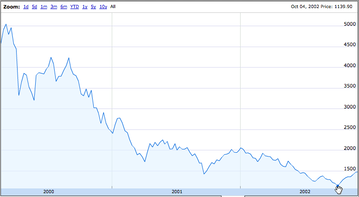
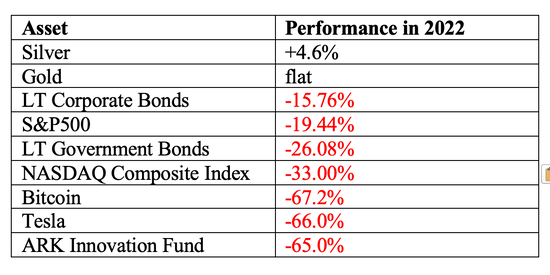
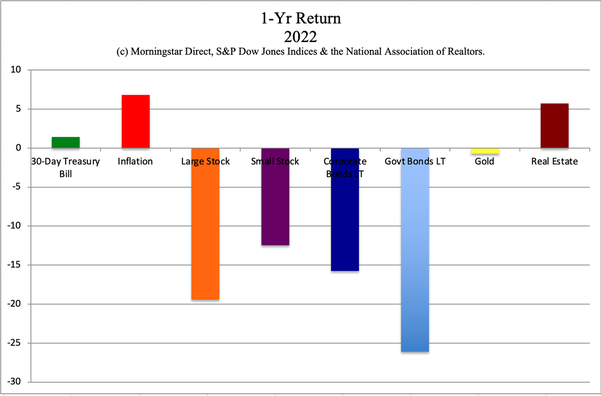
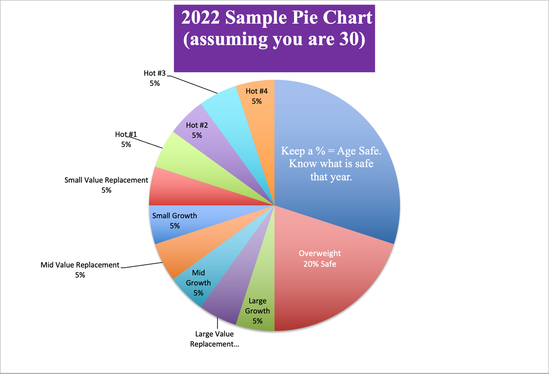
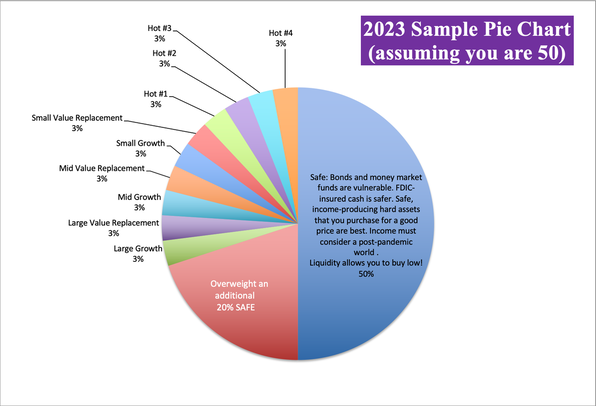
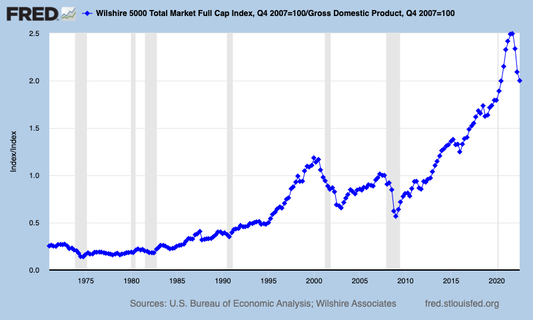
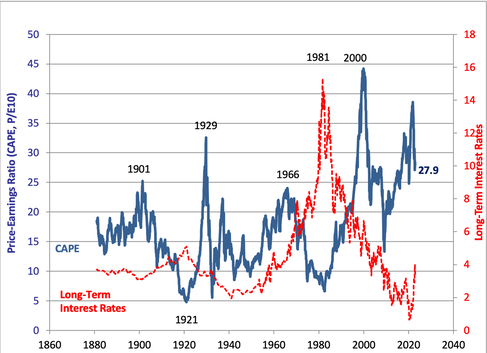
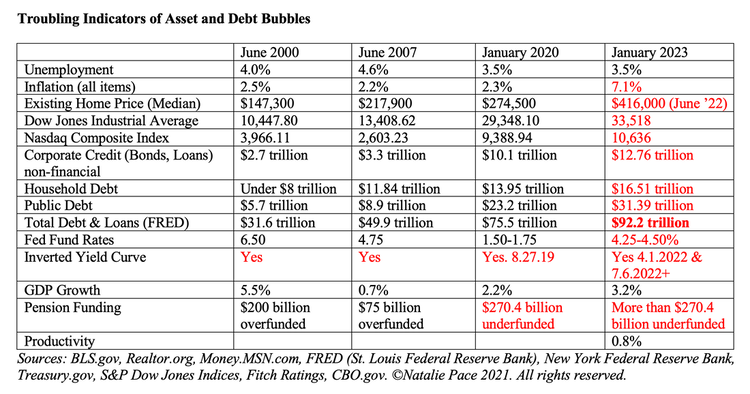

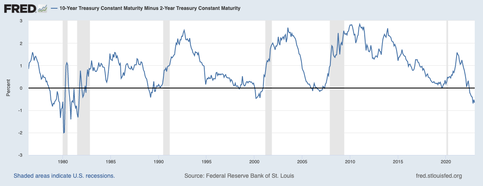
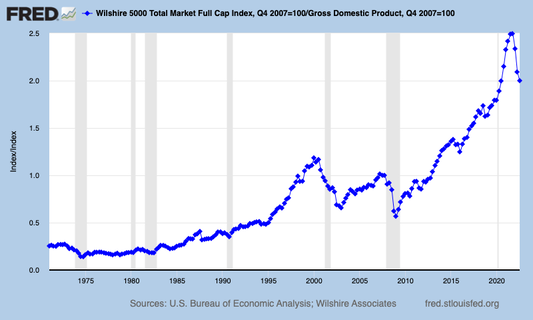
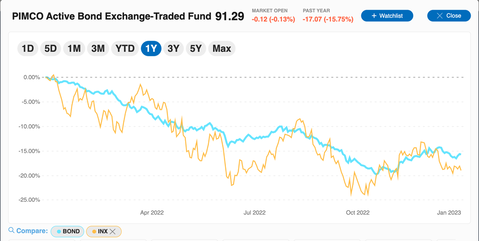
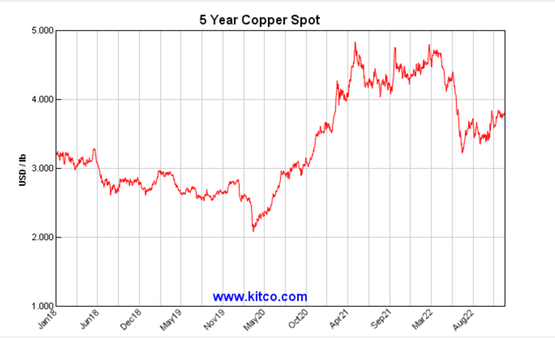
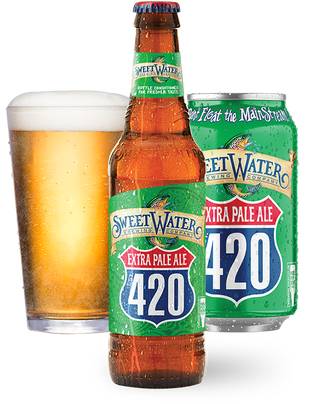
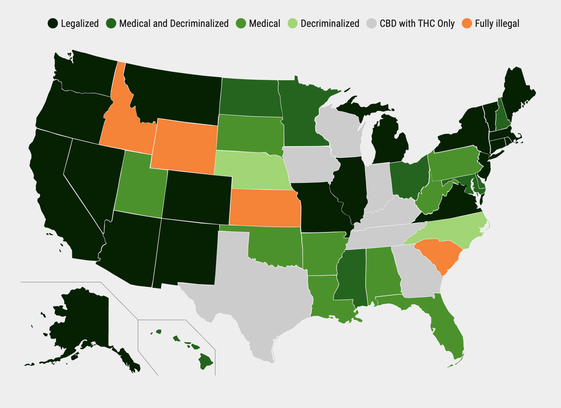
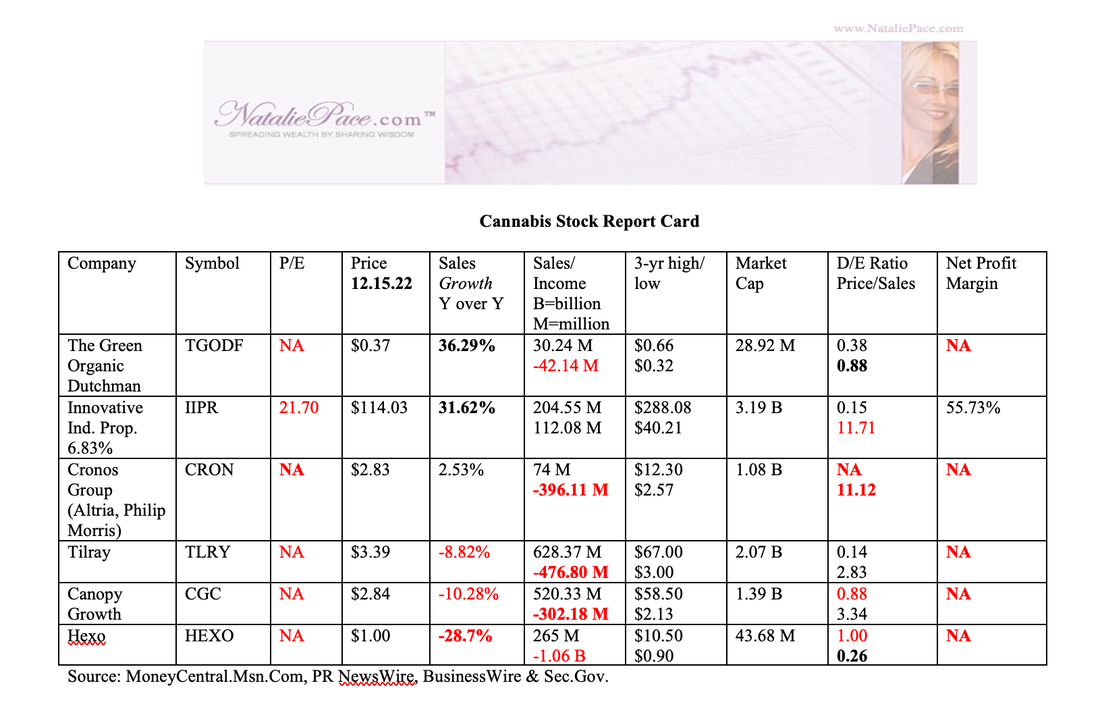
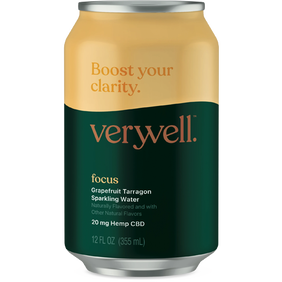
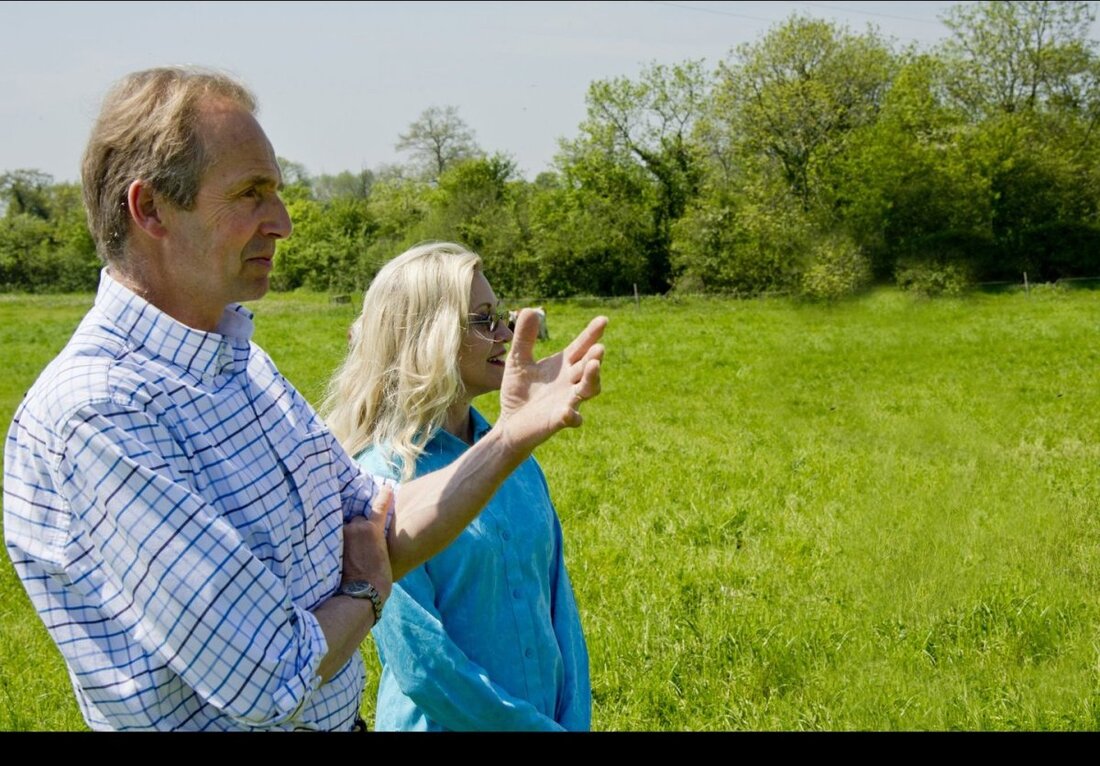



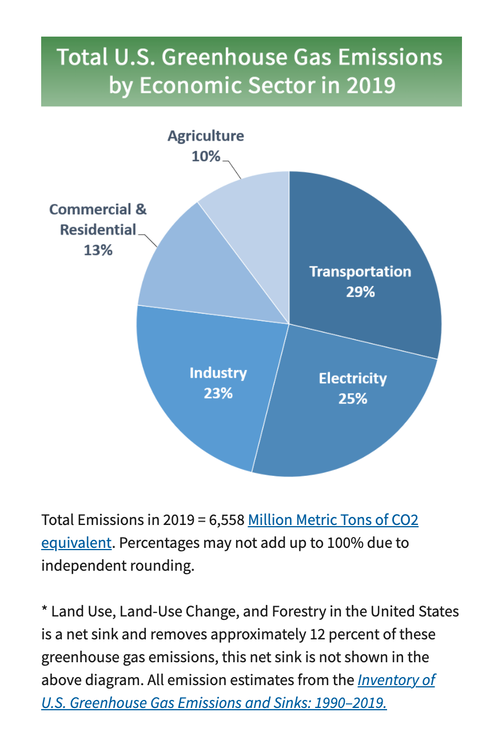
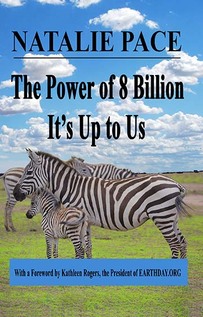
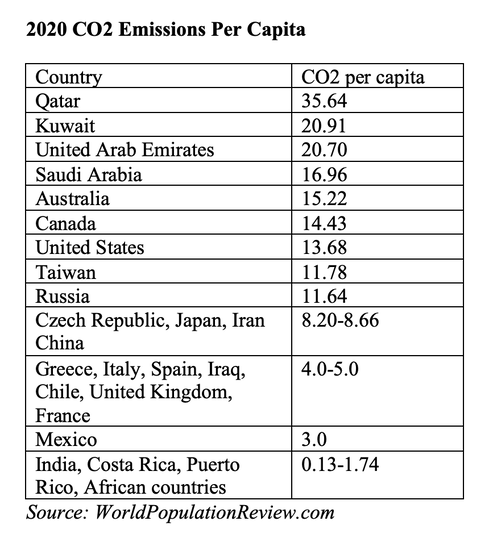
 RSS Feed
RSS Feed